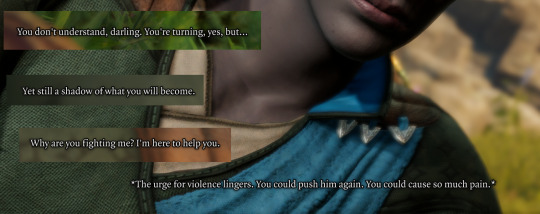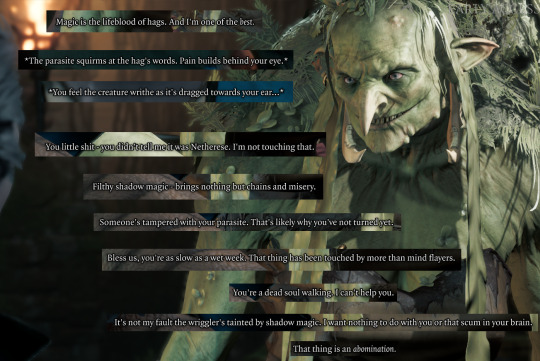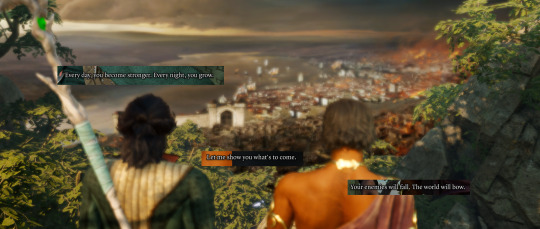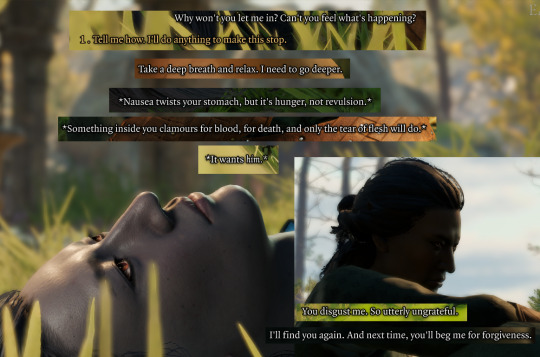#Is it possible that our beauty conventions have changed- I say yes but this particular actress would still have made a Victorian swoon
Text
The utter fury of reading about a character in a Victorian novel who is frankly described as ‘ugly’ and googling them only to find out that absolutely every tv adaptation portrays them as ‘brown haired but otherwise conventionally attractive to the 21st century’
#Are Victorian men very irritating when they choose to describe women based solely on their looks? Yes!#Is it perhaps difficult to cast for an 'ugly' role without insulting actresses? Also yes!#Is it possible that our beauty conventions have changed- I say yes but this particular actress would still have made a Victorian swoon#She has perfectly plucked eyebrows and clear skin too#So it's just going to frustrate me endlessly#Also there were aspects of this character which imo are still controversial in the 21st century#Body hair being one of many things which we still hold against women for god knows what reason#Beauty standards are bullshit and nobody should be treated better just because they're more physically attractive#But the answer to that is not 'Oh let's pretend all women are beautiful by only casting hot actresses so it's obvious these men were insane'#The answer to that is 'cast all sorts of people with all sorts of looks and if you explain to the actress the standards of the time period#I'm pretty sure she's not going to be insulted if you point out that this peanut-brained Victorian man may not have had the hots for her'#You know what's also unattractive? Internalised misogyny. But we can keep that in apparently it's just the body hair that's too much#This will never stop annoying me#It's up there with 'gives 24 year old actress grey highlights to pretend that she's now an old woman'#The Woman in White#reading log
36 notes
·
View notes
Text
Even the Losers
Chapter 2
Chapter 1
Bruce watched Lucius, or more specifically his hands, with a well concealed hostility. If you didn’t truly know Bruce or weren’t well versed at reading suppressed emotions, you could believe it was just another artificially polite expression. But Lucius had known Bruce since he was a child and Marinette hadn’t spent years fighting an emotional terrorist for nothing. “I haven’t seen you all night and now I find you coopting this beautiful young lady’s time,” Bruce observed, his mouth tight.
Marinette eyed him apprehensively, subconsciously taking a half step back. Her whole body stiffening. Lucius took note of the change and moved slightly between the two of them and laughed politely. He wasn’t sure what caused the change in demeanor but he still wanted to try to cultivate a business relationship with the young lady. When they got the fabrics working, they would need a designer and she was not only clearly the perfect candidate for the position, they had already been considering her before everything she’d said during their dance.
“Sorry, Mr. Wayne. I assure you I was not avoiding you in favor of a prettier face,” he chuckled. “Although I’ve been informed elusiveness seems to be a quality I exude unintentionally.” He winked at Marinette who smiled weakly at the attempt.
Bruce chuckled with him, tight and short exhales, his eyes never softening. “I wouldn’t blame you at all. She certainly is lovely.”
Marinette’s chest hollowed out, all the breath in her evaporating out of her chest as though it had never been there. “Kind of you to say,” she rasped out just barely looking up to meet his eyes.
“Just saying the truth,” he assured her with more sincerity. His eyes finally managed to soften as he looked at her, but immediately hardened again when he returned his gaze to Lucius. “I’m sorry if Lucius has been keeping you captive. I know he likes to talk and it can be hard to get him to stop, especially when he’s taken a particular interest in something… or someone.” His eyes sharpened on Lucius as he spoke. Lucius only raised his eyebrow in response, leaning back slightly as if to see Bruce a bit better.
Marinette immediately straightened back up, her eyes hardening. All evidence of uncertainty and unease shattering as she did. She had been the one to approach M. Fox. She had been the one to coopt his time. She had been the one manipulating the situation. And now M. Wayne was going to try to twist this on M. Fox, who had been nothing but gracious and kind. “I was just discussing innovation and the application process with M. Fox,” Marinette responded coldly before Lucius could. “He was polite enough to entertain my questions. He has been quite polite and charming and professional.”
“Were you thinking of working for WE?” Bruce asks perking up slightly.
“You couldn’t pay me enough,” Marinette scoffed out before she could stop herself. She immediately mentally face palmed. This wasn’t the time for this. Now was about Max, not her. The mission had been successful she wasn’t going to blow it now by letting M. Fox see her overreactions.
She let out a breath and looked back up with an overly wide smile. “As I mentioned to M. Fox, I’m not really interested in technology. I couldn’t imagine anything more boring than staring at numbers and code all day long,” she laughed in the way she’d seen Adrien laugh at events like this, an empty, meaningless laugh meant to indicate a lack of interest in the topic rather than actual entertainment, leaning toward Lucius as she said it, hoping to pull him into the conversation and rescue her from.
“It’s not my favorite part of the day either,” Lucius smiled graciously. “I imagine you would still be good at it,” he assured her, “but I can’t say I blame you. I would likely react the same if faced with bolts of fabric and thread.”
Marinette smiled politely, grateful to him for the reprieve. “Well that sounds interesting,” Bruce interjected. “Perhaps we can discuss what would interest you during a dance.” He motioned toward the dancefloor and held his hand out toward her.
Marinette glanced down at the hand, a weight settling in the pit of her stomach. If she gave in he’d have her for the duration of the song. One-on-one. No escape without creating a scene. Trapped by the same societal conventions she’d used against M. Fox. “Surely you must have more important guests to attend to,” she offered instead.
“I do not,” he assured her, sincerity radiating from his eyes.
Marinette opened her mouth to say yes, resigning herself to her fate when she felt a hand on her hip. “There you are M’lady. I lost you in the sea of people for a moment.” Adrien prompted her to turn slightly so he could look her in the eyes. “You okay?”
Her shoulders, she hadn’t even realized had worked their way up to almost touching her jaw, instantly relaxed. She gave him a relieved smile and squeezed his hand. “I’m good, Kitty. Thank you.”
“Is this your date?” Bruce inserted, eyeing him coldly, but held his hand out to him. “Bruce Wayne.”
Adrien gave him his practiced, social smile, perfect for galas with strangers and potentially hostile associates. “Nice to meet you, sir. This is a very nice gathering. Very kind of you to do this for the orphans,” his tone was bordering on openly hostile but keeping to the socially acceptable side of the border. Marinette choked at the statement. She hadn’t really thought about the intent of the gala since she’d made the plan. When she’d made it, the purpose hadn’t had any bearing. But now…
“Thank you. It is an important cause to my family and myself.” He missed the way Adrien squeezed Marinette tighter at his words. “You mentioned talking to Mr. Fox about innovation at Wayne Enterprises. Perhaps you would like a tour of the building. I can arrange one personally for you.”
Adrien pulled his lips into a tight, sickeningly artificial smile. “How very generous of you. Unfortunately, we won’t be in town that long. We are scheduled to leave town Tuesday.”
Bruce looked between the two, forcing his body to not stiffen at Adrien responding for Marinette. “Tell me about yourself, son,” Bruce smiled stiffly, noting that he had artfully left out his name, not that Bruce didn’t know it already, although the physical proximity to Marinette was unexpected.
It took almost all of Marinette’s experience as Ladybug to keep a poker face instead of letting her jaw drop in offense. “Why don’t you let these young people dance, Bruce,” Lucius interrupted, detecting Marinette’s increased discomfort. “After all, it’s cruel to make the young have to endure making conversation with the old guard like us.” He turned to Marinette and Adrien with a kind smile. “Make sure you don’t miss your opportunity to dance tonight.”
Marinette smiled at him gratefully. “Not at all, M. Fox. I found our conversation very fascinating. Thank you very much for sharing your time with me. It was much appreciated. But I will take you up on your advice.” She turned to Adrien and motioned to the dancefloor. “Shall we?”
“Always,” Adrien smiled. “Gentlemen.” He nodded to them and guided Marinette across the dancefloor, taking great care to escort her as far from them as he possibly could. He glanced around to make sure the men couldn’t see them and pulled Marinette into a comforting, all-encompassing hug. “How are you really?”
Marinette held him tightly and buried her head in his chest. “I’ll be okay. I just… Thank you for the save.” She laid her head on his chest as they swayed to the music. Her breath slowly shifted from shaky to more steady. She lost track of the number of songs that passed while she found her voice again. When she could breathe normally again, she stood straight and smiled at Adrien. “It worked.”
“It worked?” Adrien asked excitedly.
Marinette nodded and had to stop herself from doing an entirely inappropriate victory dance. “He wants to meet Max on Monday. Well, me too,” she cringed slightly, not looking forward to being involved beyond what she had done already. “But! But, he was floored by Max’s invention. Like completely floored! And knows about Rabler now. He did not look happy at all about the news.” Her grin widened as she remembered the encounter. “I think Max is really going to be taken care of. It went so well!” she squealed.
Adrien grinned back and hugged her. “We have to let Max know.”
Marinette nodded. “He’ll call us when he’s done. We just need to stay up until then.”
Adrien nodded. “Coffee it is then. Do you want to leave now or look around?” Marinette looked around quickly. By the time she looked back at Adrien, her eyes had lost their light. She looked exhausted suddenly, drained by the experience. Adrien gave her an understanding smile and squeeze. The mission was over. She didn’t need to be in mission mode anymore, or at least not high alert. She just had the meeting on Monday and she was done. Now she could stop blocking any potentially interfering emotions and actually let herself feel again. “Let’s get out of here and find a coffee shop then. We can take it back to the hotel and watch bad movies until Max calls.”
Marinette gave him a weak smile. “Maybe popcorn and candy and drinks instead,” she offered. She rested her head on his shoulder. “Sooooo many drinks and ice cream.”
Adrien laughed and slung his arm over her shoulder to help guide her and comfort her at the same time. They wound through the crowd making their way to the exit and freedom, where Marinette could finally breathe freely. They had almost made it to the doors when they heard someone call Adrien’s name. Adrien looked around and cursed under his breath. “Hey again.”
“Leaving so soon?” Tim asked. He looked between the two with a concerned expression. It was awfully early in the night to leave already.
“Yeah, I think so. It’s a nice event but I think we’re ready to go home, take off the stuffy clothes, and drink,” he gave him a charming, conspiratorial smile. Nobody their age wanted to be here and they all knew it.
“Oh that sounds like a brilliant plan,” the blonde woman next to Tim grinned. “I wish we could do that. But we have to at least wait until the announcement. And we can’t drink. But it would help handle events like this.” She gave them a wide smile and held out her hand. “I’m Stephanie. Nice to meet you.”
Adrien smiled politely back. “Adrien. Hi.”
Marinette smiled civilly. “Marinette. Nice to meet you.”
Stephanie’s smile widened. “Oh Timmy, make sure to keep this one away from Bruce. Black hair, blue eyes, looks beautiful but haunted. He’ll adopt her in an instant.”
Tim laughed and rolled his eyes, drawing Stephanie’s attention to him, both of them missing the way Marinette and Adrien balked and Marinette’s entire body went rigid again. “Bruce’s breaking that habit with today’s announcement.”
Adrien paled slightly. This could go nowhere good, but it was like watching an akuma hit someone when you’re too far away to help. It was going to happen no matter what. The damage would be inestimable and all he could do was watch as it got worse and worse. “Oh?”
“Yeah, our new brother… or rather their new brother, I’m not officially adopted, just unofficially the favorite child,” Steph winked at them. Tim huffed playfully but didn’t contradict her. It was easier to just let it go. “Anyway, the new Wayne doesn’t have blue eyes. Does have black hair, is beautiful and looks haunted, so maybe it’s just the blue eyes that don’t matter so much anymore.”
“N…new brother?” Adrien stuttered, struggling to keep his voice even and polite. The normal reaction to such news would be interest and happiness. Well, they certainly had his interest. The happiness part though… He pulled Marinette tighter as he sent her a furtive look. She was doing an admirable job of masking her response but he knew her. He knew the signs. He knew her lips were a bit tighter than usual. He knew her jaw was clenched harder than was normal. He knew her breathing was harder than average. He knew he shouldn’t be able to feel her pulse from here.
“Yeah!” Stephanie enthused. “Duke.”
“We were supposed to wait for the announcement,” Tim chastised with no real heat behind his words. “But yes. That’s what this gala is really for. To officially announce the adoption of Duke Thomas. So, yet another ‘poor orphan’ joins the rest of us,” he joked. “I swear Bruce just can’t help himself. He sees a kid and instantly feels the need to protect and help.”
“So thoughtful,” Marinette rasped out, pretending like her entire chest wasn’t breaking apart and disintegrating in front of them. “You must all be so excited.”
Tim looked at her for a moment but before he could analyze her tone or body language, they heard someone tapping on a microphone. “That’s our cue,” Stephanie squealed. “Looks like you might make it for the announcement after all. It was nice to meet you if I don’t see you after.” Tim and Stephanie waved before making their way to the stage.
Once the two were gone, Marinette’s eyes bulged as Tim’s words reverberated in her head. This whole thing was to introduce a new child, another new child he took in, another addition to his family, another child he wanted and brought into his life instead of throwing them out. Her eyes darted among the family members as they all made their way up onto the stage. All standing behind the new member, smiling at him, hugging him, eyes shining in acceptance for him. One big happy family, not wanting for anything… or anyone.
Marinette didn’t realize she had stopped breathing until her body forced a deep gasping breath, knocking her out of her stupor. She tore her eyes away so violently, she stumbled back, or maybe it was just that her resilience had disappeared with the words. They should not be here. They… she should never have come. This was a stupid, terrible plan. She had no right to intrude. She had no right to be here… for this.
Her heart raced out of control. Her whole body started shaking. She couldn’t breathe. Why couldn’t she breathe now? But suddenly there wasn’t enough air in the room. Why wasn’t there air? There had been air before, hadn’t there been? She remembers being able to breathe earlier. She thinks. Maybe she made that up. Maybe she hadn’t been able to breathe since she stepped in the room.
She stumbled again and reached out for support, never doubting it would be there for her. Adrien responded instantly, bringing her into his chest and quickly guiding her out of the gala. He whispered comforting and reassuring words as they moved, throwing empty smiles at anyone who bothered looking their way, as though helping his drunk date home, nothing scandalous or even unusual, nothing to look twice at.
They missed the eyes searching the crowd for them and the quickly covered up frown at finding them missing.
Chapter 3
Tags:
@maribat-bdbwm @jayjayspixiepop @redscarlet95 @alice-hazelwood @deathssilentapproach-blog @unoriginalmess @alyssadeliv @emotionalsupportginger
#maribat#bio dad bruce wayne#bio!dad bruce#roynette#Even the Losers#mbdbwm2021#prompt - family/friends
365 notes
·
View notes
Link
Guillermo Del Toro is no stranger to widespread acclaim, especially from his ride or die legion of fans. Pan’s Labyrinth, the Hellboy duology, the list of genre-bending, timeless masterworks goes on. Coming off his 2 Oscar wins for The Shape of Water in 2018, and moving into finally releasing his animated Pinocchio film from the pits of development hell along with an adaption of Nightmare Alley next year, this couldn’t be a more thriving time for the Mexican auteur. Though amongst all the praise and glory, something has still felt missing these last handful of years. Besides his Oscar-winning film, Del Toro’s works prior to the 2010s are what generally buzz conversations of his genius. Those aforementioned films did, after all, skyrocket his name to fame. His titles from the last decade, however, are just as crucial to the Del Toro canon and emphasize his greater influence as a filmmaker. One, in particular, has seemingly gotten by in its young life at the hands of few. But now that Crimson Peak has officially turned 5, it’s time to turn that few into many.
Del Toro’s trifecta of the 2010s (not counting his work on television) stand out vastly from one another. Pacific Rim, Crimson Peak, and The Shape of Water: all love letters penned from the ‘nichest’ corners of his mind. These 3 arguably boast more diversity in genre than Del Toro’s 5 films of the 2000s (3 comic-book adaptations and 2 Spanish-set fantasies). Not a criticism, as established, those films now flaunt an immovable place within the cultural zeitgeist. Though with a career notoriously marked by a slew of unrealized projects (more on this later), it’s not often recognized how the ideas that did make the cut still lead a crystal clear trajectory in Del Toro’s growth as a storyteller. In the eyes of many, Del Toro pulls ideas out of a hat and gambles on which one actually sees the light of day. Humorous sure, but this is far from the truth.
Each Del Toro project feels like a pivotal step for what would come later, take his work on Trollhunters paving the way for his upcoming first animated feature for instance. Despite this trajectory, Crimson Peak feels criminally unsung 5 years later. Pacific Rim continued its life with a sequel and more planned spin-offs. The Shape of Water literally set a new bar for the Academy. This leaves Crimson Peak feeling like the pushed aside middle child of this trio. This isn’t a call for a sequel, and ‘underrated’ gets tossed around very loosely in modern film discussion. But for cinema as quintessential as Crimson Peak, it just doesn’t feel like it gets enough recognition – especially when the current film industry is seeing less big-budget, R-rated projects heavily steeped in genre.

You can easily trace Crimson Peak‘s short-lived spotlight back to its marketing. The timely October release and scare-heavy trailers sold a classic ‘Haunted House’ horror, when in reality, Del Toro’s film is a Gothic Romance. Set in the early 1900s, an aspiring American writer, Edith Cushing (Mia Wasikowska), is swept away by a promising English baronet, Thomas Sharpe (Tom Hiddleston). They discover true love and marry, leading the young newlywed to her husband’s decaying mansion in the English hills. The age-old manor is slowly, but surely, sinking in red clay – the very source of Sharpe’s wealth. Here Edith is forced to live with her new sister-in-law, Lucille Sharpe (Jessica Chastain), a reserved yet commanding force who works to hide the true nature of the house and its endless secrets. Mystery lingers as untamed lust, envy and greed unfold between the mansion walls, not leaving enough room for the restless red-colored spirits who haunt them. When it snows on this cursed hill, the clay surfaces, making it seem as if the land bleeds. Given more than just red clay rises from beneath, a deeper meaning is given to the place locals call ‘Crimson Peak’.
Just like the clay at the center of its mystery, Crimson Peak is an amalgamation, but of genre. It would be novice to expect anything less from Del Toro. The Gothic elements call back to many classic tales, such as Alfred Hitchcock’s adaption of Rebecca and, of course, Charlotte Brontë’s Jane Eyre. On the horror side, homage is paid to Stanley Kubrick’s The Shining and Jack Clayton’s The Innocents. It’s a devilish blend that only this filmmaker could pull off so beautifully. And oh is Crimson Peak so god damn gorgeous. To contrast common period pieces that go for muted or sepia-toned color palettes, Del Toro turns the saturation on high. The result is an eye-popping picture that heightens the core emotions at play: fear, pain, and more importantly, love. Simply mesmerizing, avid fans will be quick to recognize the same shades of golden yellows, sea greens, and ruby reds found in Del Toro’s other works. It feels right at home in his filmography visually, while packing its own unique punch.
Red, a color mainly associated with passion, here instead intricately represents endless bloodshed. A twist that would suggest Crimson Peak is just as equal a horror film as it is a love story. Regardless of what might have been initially marketed to audiences in 2015, this film is a Gothic Romance from start to finish. Del Toro himself made this distinction clear to the studio from the get-go and repeatedly draws the line whenever given the chance. Yet, much like the rest of his repertoire, Crimson Peak utilizes horror not as a means to an end, but as a means for introspection. Yes, there are classic horror conventions such as jump scares, but it couldn’t be more obvious that Crimson Peak isn’t trying to evoke the same kind of high and dry fear other films heavily rely on. Del Toro is actively trying to get under your skin to achieve a hell of a cathartic viewing experience.

The ghosts of our past and how we let them define us is a core theme in Crimson Peak. The film opens on a flashback in which Edith is visited by the charcoal black ghost of her recently deceased mother. The nature of this visit sets the groundwork for the rest of the narrative. Mother Ghost, dreadful in appearance, doesn’t necessarily come to haunt her child, but to warn her. “Beware of Crimson Peak,” she says. The way Edith takes in this otherworldly occurrence, and those that follow, sets her apart from everyone else in the film. Wherein others flee from or lock away the ghosts of their past, she learns how to wear them on her sleeves – reaching out to the dead multiple times in the story, each attempt more confident than the last. Not too dissimilar from what Del Toro was playing with before, Jaeger pilots confronting past trauma in their quest to defeat Kaiju. At the same time, the transformation that occurs in Crimson Peak when neglected demons consume you from the inside – humans becoming the true monsters of their supernatural tales – would only be amplified in Del Toro’s next film.
Every minute detail coincides with this strategized, therapeutic use of horror. And to the everyday moviegoer trained by common tropes, Crimson Peak is quite deceptive. Just like Mother Ghost at the beginning of the film, the red spirits never manifest with the intent to cause physical harm, but instead to give messages and guide. Red clay seeps down the walls and the mansion ‘breathes’ as the country winds burst in. The house feels alive in the most cinematic sense possible, but the case as to it being ‘horrifying’ is not so black and white. Expertly designed to every inch, there is plenty of beauty to be found in the manor. Much of it has just been corrupted by a debauched affair – keeping this story rooted as a Gothic Romance. Subversion has always been the name of Del Toro’s game, and it’s within Crimson Peak that he uses it to mix genre so well while still staying true to his vision.
Though Crimson Peak saw Del Toro take subversion to a new level, notably with his main character. This film is a key chapter in his overarching legacy; not the first of his works to be lead by a defiant woman, but the first to have the female hero entangled in an unabashed love story. Effortlessly played by the brilliant Mia Wasikowska, the not so damsel in distress at the center of Crimson Peak is one of the most significant characters of Del Toro’s career. In discussing Gothic Romance with The Mary Sue in 2015, Del Toro explains: “This is quintessentially a female genre, that was written with characters that were very complex, very strong. I wanted to make a movie in which to some degree I recuperated and, maybe if possible, enhanced all that.” And enhanced he did for every central male character acts in more distress than Edith ever does, even when she is literally at the edge of death. A more than welcome change of pace that makes for a more resonating film.
Edith’s willingness to tackle the unknown is captivating and her vigor inspiring. But she isn’t absolved of frailty. For someone who comes to terms with facing the dead, her sheer vulnerability to heartbreak and suffering brings great humanity to the role. Hardly recognized, but Edith is one of Del Toro’s most self-reflective protagonists. A marginalized writer, inspired by the great Mary Shelley no less, in the midst of drafting her magnum opus, she immediately faces backlash from her novel’s inclusion of the paranormal. “It’s not [a ghost story]. It’s more a story with a ghost in it. The ghost is just a metaphor… for the past,” she says – giving Crimson Peak a rare Del Toro tongue-in-cheek quality that he utilizes until the credits roll. Meta enough given that the crimson ghosts Edith later encounters are, in fact, echoes of the past, but when looking back on the public’s initial perception of the film, it creates a charming, albeit ironic, wit only found here.

Additionally, when tracing back to Crimson Peak‘s pre-production days, you’ll find something even more profound. Penned by Del Toro and an old collaborator, screenwriter Matthew Robbins; this was the first script completed after the release of Pan’s Labyrinth in 2006. The two first worked together an entire decade earlier on Mimic, which has now gone down as the only film Del Toro has truly lost to studio interference. Del Toro was supposed to direct Crimson Peak in the late 2000s, but along came Hellboy II and his involvement in launching The Hobbit (another R.I.P). Through this hectic time, Del Toro would reunite with Robbins in writing 2010’s Don’t Be Afraid of the Dark, directed by Troy Nixey. However, the two also spent time together writing something else: an adaptation of H.P. Lovecraft’s At the Mountains of Madness.
For those unfamiliar, At the Mountains of Madness is by far one of, if not, the most tragic of this filmmaker’s unrealized projects. After spending years trying to get this dream off the ground, Del Toro had the following to say to Empire in 2010: “It doesn’t look like I can do it. It’s very difficult for the studios to take the step of doing a period-set, R-rated, tentpole movie with a tough ending and no love story.” The payoff of Crimson Peak being a period-set, R-rated, tentpole film only 5 years after that statement couldn’t be sweeter. In the film, Edith is told to insert a love story for the better of her novel. Del Toro is obviously commenting on expectations tied to gender here, but you can’t help but wonder if he’s also referring to one of the biggest thorns in his own writing career – one that also ties back to writing partner Matthew Robbins.
When faced with the question, Del Toro has consistently said that all of his films carry an inherent Mexican touch just from the utter fact that they come from him, and Crimson Peak is no different. Whether if deriving from his personal experiences with tackling genre, both on and off paper, or from actual events tied to his life – Del Toro reimagines two separate ghostly encounters experienced by him and his mother through Edith – this film beams with the very essence of Del Toro’s soul. Perhaps most personified when the marginalized writer gets bloody and fights back with nothing but her pen, a visual that cements this as an important stepping stone in his career. It’s a fascinating through-line, connecting to very different segments of his canon while still defining a clear path. The mending of our wounds and subversion of gender roles is continued from Pacific Rim, while setting a bold new course for delving into unfiltered, mature romance in The Shape of Water.
This is only a fraction of what makes Crimson Peak quintessential Guillermo Del Toro. Gothic Romance has long been part of this auteur’s framework, and you would be remiss not to indulge in all of its glorious melodrama. Even if it isn’t your cup of tea, Del Toro will make it so. Reaching its 5-year anniversary, the film hits stronger than before. The intricate motifs, compelling use of practical effects (complete with the involvement of Del Toro veteran Doug Jones), and cathartic use of horror make for something that has yet to be replicated by a major studio. Its lacking box office performance suggests that maybe the world merely wasn’t ready for this masterwork? But just like its characters, we hold the power to define what comes next. Del Toro himself has previously ranked Crimson Peak as one of the 3 best films he’s ever made, and straight-up called it the most beautiful. Take his word and dive in no strings attached, because who knows when we’ll get another large scale, unapologetic Gothic Romance with this much grandeur.
#Crimson Peak#guillermo del toro#Tom Hiddleston#Mia Wasikowska#Jessica Chastain#Charlie Hunnam#Jim Beaver#Doug Jones
27 notes
·
View notes
Text
So, @argumate is up to some more prosocial atheistic trolling. As is usual with such things, the conversation isn’t particularly elevated, but it does make me nostalgic for the old bbc days. So I thought I’d be the Discourse I’d like to see in the world. This is the post that kicked things off; correctly noting Platonism as a philosophical foundation underpinning most versions of Abrahamic faiths. And it’s probably the most useful place for me to target also, since hardly anybody just identifies as a Platonist but most westerners are one. So, without further ado, a halfhearted and full-length defense of Platonism:
Well, strike that. A little bit of ado.
I’m not a Platonist myself, so this is a devil’s advocate type of thing. Or maybe you could call it an intellectual Turing test? As I discuss here, my philosophical commitments are mostly to skepticism, and for instrumental reasons, to reductionist materialism. That combo leaves me some wiggle room, and I find it fairly easy to provisionally occupy a religious mindset, so I can generally read and enjoy religious polemics. I also have a fairly deep roster of what are often called ‘spiritual experiences’; I’m probably in the set of people that are by nature predisposed to religion. I am not religious, and I approve of Argumate saying things like ‘God is not real’ a lot. This is in no way a retread of the arguments in The Republic or Plato’s other writings; you can go read those if you want, but I’m going to play around with stuff that I think is better suited to this audience.
Attention conservation notice: yikes. This got pretty long.
Anyway, on to the argument. Argumate’s main point is pretty clear, I think: ‘forms’ in the Greek sense are a function and product of the perceiving mind. Birds don’t conform to bird-ness; instead brains naturally produce a sort of bird-ness category to make processing the world easier, and to turn a series of wiggly and continuous phenomena into a discrete number of well-modeled objects. Basically, we impose ‘thing-ness’ on the wavefunction of reality. And there are some good reasons to think that it might be true! Our understanding of categories gets a lot sharper when reality conveniently segregates itself, and whenever that boundary gets a little blurry, our ability to use categories tends to break down. If the recognition of animal-ness came from contact with a higher plane of reality, you wouldn’t necessarily expect people to get confused about sponges.
But. While there’s certainly plenty of support for Argumate’s position, it doesn’t strike me as anything near self-evident, or necessarily true. So what I’ll argue is that Platonism isn’t obviously false, and that if we ever converge on a true answer to the question of our reality, then that truth could plausibly be recognizably Platonist. My opening salvo here is, predictably enough, mathematics.
‘Mathematical Platonism’ is a whole other thing, only distantly related to Classical Platonism, and I only really mean to talk about the latter. But nonetheless, mathematics really actually does appear to be a situation where we can simply sit in a chair, think deeply, and then more or less directly perceive truths. Basic arithmetic can be independently discovered, and usefully applied, by almost anybody; ‘quantity’ comes naturally to most humans, and the inviolable laws of quantity are exploited just as often. It’s also very hard to argue that these are ‘mere’ linguistic conventions, since fundamental natural behaviors like the conservation of mass depend on a kind of consistent logical framework. In most chemical reactions, the number of atomic nuclei does not change, and the atoms added to a new molecule are perfectly mirrored by the loss of atoms in some reactant; this remains true in times and places where no thinking mind exists to count them.
There are a lot of debates about what math is, fundamentally. But inevitably when we study math, we’re studying the set of things that must be true, given some premise: we’re asking whether some proposition is a necessary consequence of our axioms. The so-called ‘unreasonable effectiveness of mathematics’ suggests that the phenomena that Argumate mentions- hotdogs and birds and whatnot- are observed only within the auspices of a sort of super-phenomenon. Loosely speaking, we can call this super-phenomenon self-consistency.
We treat phenomena as having a natural cause. Platonism, at its crunchy intellectually rewarding center, represents a willingness to bite the bullet and say that self-consistency also has a cause. Plato himself actually provided what might be the most elegant possible answer! Basically, posit the simplest thing that meets the criterion of being A) autocausal and B) omnicausal, and then allow the self-consistency of the cosmos to follow from its dependence on (in Platonist terms, its emanation from) that single, unitary cause. The universe is self-consistent for the very straightforward reason that there’s only one thing. Any plurality, to the extent that plurality is even a thing, happens because ‘the only real thing’ is only partially expressed in a particular phenomenon. To skip ahead to Lewis’ Christian interpretation of all this, you’d say that humans and moons and hotdogs are distinguished from God not by what they have, but by what they lack.
And for present purposes, I do want to take a step back and point out that this does feel like a reasonable answer to a very important question. Materialism fundamentally has no answer to the question of self-consistency and/or the presence of logic and order, and that is (for me) one of its least satisfying limits. We’ve got things like ‘the origin of the universe’, sure. But we probe the Big Bang with mathematical models! That’s a hell of an assumption- namely, that even at the origin of our universe, self-consistency applies. It’s not like materialism has a bad explanation. It just remains silent, treats the problem as outside the domain. If we’re adopting the thing for utilitarian reasons, that’s fine. But if we’re treating materialism as a more comprehensive philosophy, a possible approach to the bigger questions, then it’s a painful absence. In that domain, far from being self-evidently true (in comparison to Platonism), materialism doesn’t even toss its hat in the ring!
Which, uh, gets us to the stuff about Forms and shadows in Plato’s Cave and all that- the intermediate form of existence between the omnisimple core of Platonism and the often chaotic and very plural experience of day-to-day life. And frankly, we’re not especially bound to say that the forms are exactly as Plato described them, any more than atomism is restricted to Democritus. Whether there is some ‘bird-ness’ that is supra- to all extant birds might be contestable; however, it’s easier to wonder whether ‘binary tree’ is supra- to speciation and the real pattern of differences between organisms that we map using Linnaean taxonomy.
But, this is an attempted defense of Platonism and not Toggle’s Version of Platonism that He Invented Because it’s Easier, so I’ll give it a try. Fair warning to the reader, what follows is not fully endorsed (even in the context of a devil’s advocate-type essay), except the broader claim that it’s not self-evidently false. And on the givens we came up with a couple paragraphs ago, this is a reasonable way to tackle what necessarily follows. So let me see how far I can defend a very strong claim: in a self-consistent (or: mathematical) cosmos, beauty cannot be arbitrary.
Remember that Plato never argued that his Forms were arbitrary, or even fully discrete as such; their apparent plurality, like our own, emanates from the unitary Thing What Exists. And so, bird-ness is treated as a contingent thing, not an absolute. It’s just not contingent on human experience. And so for us to believe in ‘bird-ness’ is to believe that there exists some specific and necessary pattern- a Form- which any given material bird must express.
Let’s take an obvious example: any flying bird will, for fairly simple aerodynamic reasons, tend to be symmetrical. Usually, this means two wings. In theory, you could… have one in the middle? Maybe? Even that seems rather goofy to try to imagine, but you could probably get away with it if you were extremely creative biologically. And if we see a bird with only one wing (without a prosthetic or other form of accommodation), then we will tend quite naturally to recognize that something awful is in the process of happening.
A fully materialist explanation of our reaction here would say: we think of the one-winged bird as problematic because A) we have been socialized to recognize and appreciate two-winged birds, and spurn deviations from that socialization, or maybe B) because natural selection has given us a set of instincts that recognize when a body plan has failed in the past, so things like ‘being crippled’ or ‘being sick’ are recognizable.
Platonism, I think, would offer a third option, that C) we recognize (as emanations of The Real Thing) that a one-winged bird body is insufficiently reflective of The Real Thing, and that accordingly it lacks the ability to keep existing. Plato had some… basically magical ideas, about how Forms are recognized, but here I’ll point out that ‘deduction’ is a completely serviceable kind of magic for our purposes. It is, after all, our direct experience of the self-consistency of the cosmos, which follows from the fact that we are ourselves an expression of that same self-consistency; it meets the criteria.
Materialists, obviously, would agree that deductive reasoning could allow a person to recognize the problems inherent in a one-winged bird, but as I said a few paragraphs up, their(/our) explanation of this process is rootless. “Yes, logic and a few high-confidence assumptions let you assume that a bird with only one wing is in trouble,” they might say. And we might ask- “what makes you so sure?” And then the materialist must respond, “Well, let me be more clear. It always worked in the past, and my Bayesian priors are strongly in the direction of the method continuing to bear fruit.” True enough, but it’s not an explanation and doesn’t pretend to be. The universe just does this weird thing for some reason; it works ‘by magic’. So why not call it that? Theurgy for all!
So, consider. We recognize (deductively, let’s say for the sake of argument) that a one-winged bird is on the road to becoming nonexistent, absent some change in circumstances. It may keep going for a little while, but it’s not in homeostasis. And if we reasonably admit this very basic duality to our thinking- things which can persist, and things which cannot- then we start to recognize a sort of analogy between physical phenomena and mathematical propositions. A lemma can be right or wrong, albeit sometimes unprovably so. Basically, it can follow- or not- from the axioms we’re working with. And in a softer but very real sense, that one-winged body plan is wrong analogously to the lemma’s wrongness. Not ‘wrong’ as in ‘counter to cultural norms’, but ‘wrong’ as in ‘unstable given the premises, given the Thing That Exists Most’. Look up research on fitness landscapes, if you’re so inclined- actual biological research isn’t totally unacquainted with the notion. There exists a surprisingly discrete ideal or set of ideals, both for flying birds as a whole and subordinately for any given flying bird species. And we have discovered this using magic.
Insofar as beauty is something to be admired, or pursued, or is otherwise desirable, then our sense of beauty must necessarily correlate with those abstract, and dare I say supra-real, qualities which allow things to persist, and which can therefore be understood deductively. And that set of qualities does, effectively, meet the Platonic criterion of a ‘form’.
The immediate materialist objection is: hey, wait a minute. The supposed ‘objective’ criterion of a bird is contingent, not absolute! It follows from the strength of gravity, the thickness of the atmosphere, the availability of food sources, and on and on. This is one of the most important reasons why genetic drift and speciation happens in the first place, because the ‘ideal’ bird depends on an environment that’s in constant flux.
True enough. But! How do you think the atmosphere got there? It’s an old trick in religious discourse, but in this case I think a valid one. The rightness of the bird depends on the atmosphere, the rightness of the atmosphere depends on the planet, the rightness of the planet depends on the solar system, and ultimately it all depends on that necessary self-consistency which (we proclaim) implies our unitary Most Real Thing. This does mean that we can’t really think of Platonic forms as wholly discrete objects, unconnected to one another and without internal relation among themselves- unfortunately, that’s part of the original Plato that I don’t see as defensible, even with maximum charity. But there’s such a thing as a ‘ring species’, and if we admit Platonic Forms of that type, a kind of dense network of paths being traced through higher-dimensional spaces that correspond to the shadow of That Than Which There Is No Whicher, then it’s more than salvageable. It’s both satisfying to imagine and, I think, quite consistent with the spirit of the original philosophy.
One thing this doesn’t mean. Even if we were to accept all of this, we aren’t obliged to resign ourselves to the lot of that one-winged bird. Indeed, if anything this gives us a rich language by which to justify a prosthetic wing or other form of accommodation: we can talk about ‘making the bird whole’, and can see how our compassion for that bird might lead us to create the conditions of homeostasis once again. But it does mean that if we take a position on the merits of existence- if we’re in favor- then we don’t treat a one- and two-winged bird as coequal scenarios.
Anyway, this has gone on hideously long already for what’s basically an intellectual exercise, so I won’t dive into immortal souls or any of the other ancillaries. I mostly want to reiterate that, far from being obviously false, I do think that (some forms of) Platonism are quite defensible, and can provide coherent answers to questions that I A) care about very deeply and B) can’t resolve to my own satisfaction. Of course, it is not obviously nor trivially true, either. But one can be Platonist without being willfully wrong.
67 notes
·
View notes
Text
What can we say about the relationship between the tadpole and the person who appears in dreams?
[Baldur’s Gate 3, Early Access, Spoilers]
At a first glance, in a careless attempt, we immediately connect the tadpole with the image of the person in our main char’s dreams. One is inclined to think it is the tadpole itself asking for the host to let them in. However, after carefully watching the scene, and checking all its options... I started to doubt it.
During Early Access we only can see four dreams [video compilation of the dreams]:
The first one, in which only the voice is heard for a couple of seconds, shows a weird... tentacle-like creature? It’s not made of the gray skin of a Mind Flayer, it’s red, and unless it’s a terrible bug... it may say that we are in the presence of something different than the usual Mind-Flayer. In fact, I think it looks like a tiefling or a Cambion tail/wings (they have thorns). Could it be Raphael’s since he is red? How do we explain those boots in the top of the screenshot?. Maybe it’s a mere bug.

The second one, in which the main char awakes in that intense green garden, has a peaceful sense to it.
The third one is when that desired person in the dreams shows you an enemy you stab in self defence, and then you observe an entire city under siege.
The forth one is when you have the ability to kill that person in the dreams.

After having the second dream, we can talk about this with our companions. All of them, except by Astarion, explain that their dreams were about desire and power. About a promise.

It's clear for us that Gale dreamt about Mystra and Wyll about Mizora. Both women are the embodiment of power and desire. We don't have a clue who Shadowheart dreamt about, but we know is a he that represents the same values. Astarion is the one who disrupts the pattern.
He dreamt about Cazador, which is for sure the representation of power, but of his desire? At first I thought it was a twisted taste forced onto him over two hundred years of slavery. As a slave, maybe he had to learn how to enjoy the worst things just to endure it, so the incredibly wicked and twisted insinuation of Astarion being attracted to his tormentor... was surprising at first. Especially when you explore his dialogue and he shows a strong bad reaction to such insinuation.
Thinking about it a bit more, I realised that maybe Astarion “desiring” Cazador is another thing he is forced to do against his own will. Or maybe it's the typical consequence of the vampire relationship with the sire: the childe is always attracted to their sire, no matter how much they hate them. Astarion is not even free of having his own desire due to Cazador's power, so... his dream about Cazador was another display of the control that such figure has over him. Therefore, we can say that, in the end, he is also following the pattern, but his desire is commanded by being a vampire spawn.
When it comes to the main char, we also know that such figure in their dreams is someone they are attracted to [that's exactly what we were asked to do in the character creation part].
The tadpole in the main character's head reacts negatively to this desired person, and it’s strange. It can mean that the projection of that figure and the tadpole are not the same (Gale, are you wrong?). The figure acknowledges the presence of the tadpole and the transformation in process, and they seem to be in power of stopping it if only you let them “in”. But the presence of the tadpole is always there while interacting with this figure, uncomfortable and wanting to get away from that desired person. The tadpole feels threatened by this figure.
At times, this beautiful figure feels like an entity proper of a demon, asking you to let it in and possess you. We know by Shadowheart’s comment that this voice appeared in her head when she was in the ship, so that we can assume it started to affect the hosts by the same time the tadpole process started.

The hag provided us the most valuable information I found out in the game. She confirmed that the tadpole has been altered, as everyone had suspected. But not only that... they had netherese magic, shadow magic (*) in it. This, however, feels wrong in terms of lore: mind flayers detest arcane magic, they believe its a corrupt version of the psionic power they have. Mixing it with their traditional birth procedure looks odd. Odd if this new experiment is only their idea. Maybe the big mind behind these new tadpoles is not a Mind flayer.
With this bit of information given by the hag, I was inclined to think that this magical compound may explain the presence of the person in the main char's dreams. What surprises me is that the tadpole wants the figure away, so how is it possible that both, the figure and the tadpole, work one against the other? If we assume that the tadpoles were altered to perform a transformation of some sort, shadow magic embodied by that figure and the tadpole should work together. However, the tadpole triggers hunger and animal instincts to rip that figure out. It feels endangered. Maybe it’s because the whole procedure is an experiment yet.
The desired figure keeps claiming they want you to help, but in the process, they also tell you that you can be more powerful and conquer Baldur's Gate [yes, despite the blurriness, it is enough to distinguish the characteristic entrance of the city].

[image from the trailer]

The last dream is one of the most disturbing ones. You awake with symptoms of your skull starting to change its bones, and apparently, the presence of the figure is the only thing which is preventing the transformation. The figure is irritated. You can ask them for help you because the parasite is going too far. The figure says that they need to go deeper into you to calm down the “animal” inside. And once more the tadpole activates a defence mechanism.

You can indulge yourself in the desire of destroying the figure apart, and you ride the figure strangling them and killing them. The figure calls you “monster” and tells you that you deserve what's coming for you [which I assume, it's the standard Mind Flayer transformation]. The experiment may have failed in this way since you destroy the stasis.

If you resist the impulse of killing them and at the same time resist the intrusion of the figure, the figure is disgusted with you. The figure only is understandable with you when you tell them the truth about your impulse of killing them. They will state that they knew about it, and they trust you to control it while they go deeper into you.
It’s disconcerting if the sudden hunger for death comes from the tadpole (I put my coins here) or from the figure going deeper into you. I assume it’s the tadpole because the figure will call you monster and wont be happy if you indulge yourself in that hunger.
By the end, the figure calls you ungrateful if you resisted them once more and tells you that the next time you meet them, you will ask forgiveness. Early access allows that last dream and no more.
Hypothesis
Now, all these strange urges for murdering the figure makes me wonder if the magical compound that now these tadpole have is related to some evil divine entity, playing a role similar to Bhaal in Baldur’s Gate 1 and 2. In those previous games, you and a bunch of people were direct spawn of the God of Murder, and in a couple of occasions, you had strong urges to kill losing control of your character [and killing NPCs you were fond of]. What if... this new tadpole is an experiment combining the Mind-Flayer procedure of birth (needed in order to have a completely different body for new demi-god powers) with a divine-infused-magical compound from the shadows. What for?. I don’t know... maybe to create an army of demi-gods? [following the usual flavour of Baldur’s Gate series].
This procedure, if it’s as such, could allow to have god-spawn creatures without the God sleeping with mortals and waiting mortal-gestation times. xD If we follow this train of thoughts, and we believe a God is behind all this, it must be some tyrant God, like Bhaal or Bane, since the dreams are all about power and control, showing Baldur’s Gate under siege. Maybe the procedure is not perfect, since there are two different effects working one against the other: The shadow magic that infuses a degree of divinity is about desire and power, but the tadpole’s only interest is to go on with the standard Mind-Flayer procedure.
I thought about this divinity-compound because we saw that there are third parties interested in this new particular tadpole: Raphael. What Gale says to you after his visit is a fact: if a cambion become interested in these tadpoles, it’s because there is more than souls at stakes. But all of these are specualtions. The only certanties are:
Tadpoles are not only Mind-Flayer-made.
They have been altered with Shadow Magic (weird for Mind Flayers).
The Tadpole and the figure which offers you power are different entities.
The more you use powers of command, the more these dreams come and the more it triggers the Mind-Flayer transformation.
The figure in your dreams is the only one preventing the Mind-Flayer transformation.
Conventional tadpoles only cause Mind-Flayer transformation in a week.
Extra information I found later [here]
More content of bg3 in general [here]
-------------
(*) Shadow magic is a Weave-base magic in the Forgotten Realms. It comes from the Shadow Planes connecting to them via the Weave. It's not related to Shadow Weave (an alternate Wave crafted by Shar), something I talked about when explaining some bits of Mystra [here]. You use the standard Mystra-Weave to use shadow magic, but it's not rare that users of shadow magic find some affinity with Shadow Weave.
Apparently it's a type of magic strongly related to a human [Tethyrian] ethnic.
Churchs of Lolth, Mask, Set, Shar, and Shargaas show interest in this type of magic.
#bg3#baldurs gate 3#bg3 spoilers#baldurs gate 3 spoilers#tadpole#mind flayer#forgotten realms#forgotten realms lore#I'm new at this lore!!!! so help me... this world is so fuckign vast and not always consistent!!! shit#trying to find some continuity of BG3 with Bg1 and 2#there is always a god behind every big shit... so....#is it bhaal again??#bg3 lore#bg3 meta
21 notes
·
View notes
Text
What's Going On In The World?
GEORGE L. FAULL
Antony Flew, world’s most respected atheist has changed his mind. He is now an admitted deist (one who believes God created the world and went off and left it to run on its own with no revelation of His will to His creatures.). The thing that convinced him was the design of DNA. He reminded journalists that even Darwin required a creator to start it all. He also says that the resurrection of Jesus has more evidential support than any other miracle. His stumblingblock is the problem of evil in the world. He regards Islam with horror and fear due to their desire to conquer the world.
Robert Schuller, of the Glass Cathedral.
Two of Schuller’s students are Bill Hybels and Rick Warren. Schuller says we do wrong in making people aware that they are sinners. He stresses mans value instead of mans unworthiness. The boys have learned well. Hybel, Warren, and Schuller have had more input in our Churches in the last 10 years than Paul or Peter. Incidentally, Schuller said it would not disturb him to come back in 200 years and find his descendants Muslims. That will never happen simply because he isn’t coming back.
Fuller Theological Seminary President speaks to Mormons.
In speaking to them in Salt Lake, Richard Moun apologized that evangelicals “have often misrepresented the faith and beliefs of the Latter Day Saints. We evangelicals have sinned against you.” Better think twice before you send your Preacher to a Fuller Church growth meeting. Our preachers are attending in droves to Rick Warren, Jack Hayford and other such gurus who espouse the Fuller attitude. They invite in every hue of sectarianism to these Church growth meetings including Mormons.
TBN’s Paul CrouchThe charismatic Paul Crouch of TBN attempted to conceal the fact that he was gay by paying $425,000.00 to Laverne Ford who eventually exposed him. Crouch also said, “I have come to the conviction that Martin Luther made a mistake, he should have never left the Catholic Church. I am eradicating the word Protestant from my vocabulary. I am not protesting anything. It’s time for Catholics and Non-Catholics to come together as one in the spirit and one in the Lord.” TBN is an apostate network that some of our men appear on for interviews.
Max Lucado
Max Lucado, the new darling of the North American Christian Convention, used to be a Church of Christ preacher. In October, he changed the name of Oak Hills Church of Christ. He dropped the “Church of Christ” name in an effort to reach people hesitant to attend a Church of Christ. His Church jumped from 3,300 to 4,500 in 6 months. At a Charismatic Promise Keepers rally he said, “It does not matter about your denomination, it’s all about God.” Oak Hills has a booklet called, “
The Purpose of a Teaching Position
”. It says,
“A teaching position serves to articulate the convictions of the Oak Hills leadership on a particular doctrine or practice. This paper on the topic of baptism is useful for:
1.
Those who have never been baptized.
If you want to become a member of Oak Hills and have not been baptized, we ask you to do so.
2.
Those who have been baptized
, but not by immersion. We have many potential members who were baptized by sprinkling, usually as infants. This paper will help you see why we baptize by immersion. It also explains why we don’t baptize infants. We urge you to read the paper and consider adult baptism. If you choose not to be immersed at this time, we still welcome you as a member. We ask only that you respect this position and not be divisive. Members serving in instructional capacities (such as Bible class teachers, small group leaders, and ministry leaders, elders and staff ministers) need to be in agreement and compliance with the teaching position.
3.
Those who have been baptized by immersion.
It is our prayer that this study will give you new insights into the beauty, simplicity, and significance of this demonstration of devotion.
Open membership was the hottest debated issue in the Restoration Movement in the last century. Today, the Brethren heading up our Colleges and conventions and camps have no conscience at all of bringing in apostates like Max Lucado, David Reagan and others of that persuasion.
Tony Compolo
They even bring in Tony Compolo, who even many denominational Churches will not use because of his stating that homosexuals were born that way. He has socialist agendas. He was brought to a heresy trial in 1985 for saying that Christ is in every human being. His wife promotes homosexual marriages. He often uses vulgarisms in the pulpit to shock and shame his listeners. His defense, “what’s worse, is that you’re more upset with the fact that I said [vulgarism] than the fact that 30,000 kids died last night!” This was repeated at one of our schools.
John Hagee
John Hagee of TV fame believes that the spiritual gifts still continues today is getting a larger following. He has raised thousands of dollars to move Jews to the Holy Land, uprooting Palestinian Christians in the process. He believes Christians should have no duty to evangelize Jews since eventually. “All Israel will be saved.” He is a Christian Zionist. He pals around with Benny Hinn and other Charismatic charlatans. He is best known for his pushing of the Jewish agenda, thinking they have a spiritual relationship with God that will bring about their redemption without Christ but by living only in the light of the Torah. He says,
“I’m not out to convert the Jewish people to the Christian faith.” He adds, “In fact, trying to convert Jews is a waste of time. The Jewish person who has his roots in Judaism is not going to convert to Christianity. There is no form of Christian evangelism that has failed so miserably as evangelizing the Jewish people. They (already) have a faith structure. Everyone else, whether Buddhist or Baha’i, needs to believe in Jesus. But not Jews. Jews already have a covenant with God that has never been replaced by Christianity”.
Hagee is renown for taking on anti-Semetics but he is in reality, the true anti-Semetic for he will not evangelize the Jew and give them what they need for eternal salvation.
Rick Warren
Rich Warren, of “The Purpose Driven Church”, and “The Purpose Driven Life” fame has changed the Christian Churches and Churches of Christ more than any fad for the past century due to gullibility of our preachers. He has been fellowshipping with John Templeton of the John Templeton Foundation. Templeton awards a million dollars to different persons who further the cause of harmonizing world religions. These have been awarded Agnostics, Pantheists, Hindu’s, Muslims, Buddhists, Jews as well as Billy Graham, Chuck Colson, Bill Bright, and Mother Teresa.
Is Rick after such?
Who knows? Having sold millions of books, he certainly does not need the money. He is now one of the judges for a written essay contest that Templeton is holding. He will serve as judge in the contest with renowned left-wing radicals.
TV Attention Deficit DisorderPortland (Oregon) Life found that for every hour per day preschoolers watch TV, then chance of developing attention deficit disorders later in life has boosted 10%. This is an alarming fact. You need more than control. Abstinence may be easier than temperance.
Billy GrahamRobert Schuller asked Billy Graham this question, “Tell me, what do you think is the future of Christianity?”
Graham’s reply was:
“Well, Christianity and being a true believer you know, I think there’s the Body of Christ. This comes from all the Christian groups around the world. Outside the Christian groups, I think everybody who knows Christ, whether they are conscious of it or not, they’re members of the Body of Christ. I don’t think that we’re going to see a great sweeping revival that will turn the whole word to Christ at any time. I think James answered that. The Apostle James in the first council in Jerusalem, when he said that God’s purposes for this age is to call out a people for His name whether they come from the Muslim world, or the Buddhist world, or the Christian world, or the non-believing world, they are members of the Body of Christ, because they’ve been called by God. They may not even know the name of Jesus, but they know in their hearts that they need something that they don’t have, and I think they turn to the only light they have, and I think that they are saved, and that they are going to be in heaven with us” (Billy Graham, televised interview with Robert Schuller, May 13, 1997).
In response to Graham’s totally unscriptural statement, Schuller explained, “What, what I hear you saying is that it’s possible for Jesus Christ to come into human hearts and soul and life even if they’ve been born in darkness and never had an exposure to the Bible. Is that a correct interpretation of what you are saying?”Graham answered, “Yes, it is because I believe that. I’ve met people in various parts of the world in tribal situations, that they have never seen a Bible or heard about a Bible, and never heard of Jesus, but they’ve believed in their hearts that there was a God, and they’ve tried to live a life that was quite apart from the surrounding community in which they lived.” This was 1997. But even as far back as 1961 Graham said of infant baptism,
“ I have some difficulty in accepting the indiscriminate baptism of infants without a careful regard as to whether the parents have any intention of fulfilling the promise they make. But I do believe that something happens at the baptism of an infant, particularly if the parents are Christians and teach their children Christian truths from childhood. We cannot fully understand the miracles of God, but I believe that a miracle can happen in these children so that they are regenerated, that is, made Christians, through infant baptism. If you want to call that baptismal regeneration, that’s all right with me.”
(Lutheran Standard October 10
th
, 1961)
Graham has for years turned over the names of those who came forward at his rallies to the Churches from which they came. In 1957 Graham said, “Anyone who makes a decision at our meetings is seen later and referred to local clergymen, Protestant, Catholic or Jewish.” (San Francisco news)
Yet many of our top leaders in our own Churches appear with Graham and support his crusades...SHAME!
“KINSEY” Movie,
You need to know that Alfred Kinsey, the hero of the movie, was a pervert, pedophile, wife swapper, bi-sexual and the one who deceived America with his false
Kinsey Report
. He is the one who made up the lie that 10% of Americans are homosexual. He used for his own survey prison inmates and prostitutes. He made his staff perform lewd sex acts on film. He employed no trained statistician. He himself should have been imprisoned as a pedophile. The American Legislative Exchange Council (2400 State Legislators) recently concluded the
Kinsey Report
was “illegal and criminal acts masquerading as science.” See proof of all this in a book by Judith Rusmar and another by Susan Brinkmann or contact the eagleforum.org website.
The above news information has been gleaned from
The Calvary Contender
,
The Sword of the Lord
,
O Timothy
,
Christian News
,
The Eagle Forum
, and
The Way of Life
magazines. These groups do a great service in marking those who teach contrary to what the Christian has learned from the Holy Apostles.
2 notes
·
View notes
Text
Le cirque des mirages
T, 3.7k, IronHawk, Fluff & Angst, Underage Drinking, Druge Use, Implied Child Abuse & Self-Harm, H/C - it’s all not that intense, there’s fluff too | AO3
―
The first time Tony fell in love he was eight years old.
His father was abroad for a week on a business trip and his mother and Jarvis took the opportunity to watch with him a circus performance. From the very second the director entered the arena Tony was completely entranced.
With awe in his eyes he watched the trainer tame a real lion, which almost took his breath away throughout the whole show. The horse spectacle put a smile on his face bright enough to reach from one ear to the other. Even the clowns made him laugh, although it took him only seconds to see through their tricks.
But his personal highlight were the acrobats; Those men and women bending the laws of physics according to their own visions through sheer muscle strength and concentration with grace and beauty. How they performed stunts in breathtaking elegance and finesse Tony never even could have dreamed of.
Throughout the whole show his mother failed to make him sit still ― because Tony, Tony felt like he was flying.
Even months later, his eyes still reflected the sparkle of the cheery-colorful costumes. He told everyone who wanted to hear ― and those who didn’t ― about his mathematical calculations, which he puzzled over for days. At what angle someone had to hold their pose in order to balance on a rope in the middle of the air, despite the high air resistance. How much strength it needed in the arms to swing from ring to ring without falling on the floor with a loud thump. Or how strong one had to push their legs so that another person could position themselves onto the feet.
Years passed and Tony never wished for anything other than watching a circus performance for his birthday. In every second that he didn’t convulsively try making his father proud, he dreamed of big tents, the interior filled with multicolored lights, and the feeling of warmth in his chest.
His illusions stopped all of a sudden when he was fourteen years old and his much older classmates all thought of him as boring. Instead, he began to devote himself to the art of seduction and became friendly with the taste of whiskey on his tongue.
But buried deep inside, the circus always remained his personal sanctuary.
―
The second time Tony fell in love he was seventeen years old.
Dead drunk and with no memory of the last three hours, he found himself right in front of a circus tent, the loud shouts from the inside announcing the beginning of a show. He didn’t know how his feet carried him to somewhere in the middle of nowhere, but instead of ordering a cab back to the MIT campus, he bought a ticket and before he knew it, he was in the middle of that turmoil that only tormented his drunken head even more.
Though the majority of the performance flew past him in a shimmer of colors and roars, he grasped enough to see that this was not a conventional circus. The acrobats sometimes lacked some limbs, knife throwers threw at each other and not at targets, fire-eaters jumped simultaneously on trampolines, clowns juggled with swords… if Tony hadn’t been so sure that he hadn’t touched a single joint that day, he would have been convinced he was high.
Just when he thought the performance was over and he was ready to go back―
“And now a big round of applause for the star of our show, The World’s Greatest Marksman! Or as you know him: Hawkeye!”
―the wind was taken out of his sails.
A boy, not possibly older than fifteen, entered the arena in a purple suit, bow in one hand and arrow case in the other over his shoulder swinging. His blond hair looked like he had just gotten out of bed, a scar ran across his right cheek and a devil-may-care grin graced his lips.
Tony was immediately captivated in its spell. As if hypnotized, he watched this boy shoot his arrows at the moving targets in a matter of seconds without looking at them once, and each time hitting bull’s eye. Watched the muscles of the upper arms illuminated by the spotlight move as the bow was pulled. Watched him roll in midair as he was light as a feather.
Tony couldn’t help but return the next day. And the day after that. And as often as possible until more than a month had passed and his fascination with Hawkeye still didn’t find an end at all. He no longer even looked the other attractions anymore, but only had eyes for the mysterious and mesmerizing archer.
Then, the circus did what all circuses do ― they moved.
And Tony followed.
But Tony was first and foremost an MIT student, and there was only so much he could do. If he hadn’t been a billionaire’s son with unlimited access to his fortune since hacking into Howard’s bank account years ago, he would never have been able to follow them across the states whenever he had a day off.
Before he knew it, two years had passed and Tony had graduated from the university with two doctorates. The circus had once again temporarily taken root in New York, where he also planned to complete his third doctorate.
Since his third visit, he could’ve sworn that Hawkeye winked at him at the end of each of his shows ― this assumption was confirmed when, once again, he was the last one left in the tent, sweetly dazed from the marijuana mixed with the bitter taste of the whiskey, before carefully stumbling outside.
“Y’know,” greeted him a chirpy-cheerful voice to his left, “they call me Hawkeye because I observe a lot and see things better from a distance. Not just see, but see, know what I mean?”
“Ah, and here I thought it’s because you’ve got a bat’s sense of hearing,” Tony couldn’t help but say. At least this earned him an amused snort.
“Nah, ‘m hard of hearing and if I weren’t so good at lip reading, I wouldn’t have understood a word of what you just babbled,” came the witty answer Tony admittedly hadn’t expected. “I must’ve left quite an impression that you watch my shows regularly over two years, huh?”
Oh, haughty. Tony liked that a lot. “Who says I’m here for you? Maybe I’m just here because of the incredible Swordsman, ever thought about that, huh?”
Another snort. “Two words: Hawk. Eye.”
Technically, this was still just one word, but okay, he won that round, Tony didn’t know how to counter that.
Then, with a jerk, he pushed himself off the pole he had been leaning against and came so close to Tony that they breathed the same air. “Name’s Clint,” he introduced himself with a mischievous grin on his face.
Which Tony already knew. Clinton Barton, seventeen, joined together with his older brother Barney the circus when he was only nine years old. Tony did not stalk him; those are the only information he had dug up ― he just really had wanted to know who that amazing archer was.
“Tony Carbonell”, he said, like the professional liar that he was, and grinned right back.
Clint nodded once, licked his lips and asked uninhibited, “Wanna fuck?”
Hell yes, he almost shouted, if… if he hadn’t seen something in Clint’s sky-blue eyes that he couldn’t quite identify. A mixture of insecurity, fear and caution ― once bitten, twice shy, he thought. Tony understood that there depended more from his answer than just its semblance.
“Thanks, but not today. Perhaps some other time, if the offer still stands then.”
As if on command, Clint’s whole posture visibly relaxed, as if an invisible weight had fallen from his shoulders. Jackpot.
“Do you want to share a joint with me instead?” Tony seamlessly changed the subject, like he had learned from child on as the center of the media to let a conversation dance according to his pipe.
Clint shrugged. “Sure, why not?” Which is how minutes later Tony learned that Clint had never smoked a joint before. He also learned that Clint was a terrific storyteller. In particular, however, he learned that Clint’s laugh could even lighten a cathedral.
In less than two hours, the two of them became best friends. And less than three weeks of those regular meetings, they became lovers.
When one night under the starry sky Clint kissed him on the mouth without even a warning ― in the middle of the sentence ― it was as if the world had stood still. Chaotic and moisty and interrupted by their drunken laughter, it was the worst and best kiss of his life.
Two days later, Tony rented a shabby little flat in Manhattan that was about to collapse. Strictly speaking, he bought the whole building, but he twisted the truth there a little bit. That was the only way how he could bring Clint home without Howard knowing about it and without Clint getting wind of his wealth.
“I like your place. Nice view,” mocked Clint. After that there was not much left to say, because Tony wanted to inaugurate this apartment. Years ago, Tony had already lost all interest in virgins, but Clint’s inexperience was a delight that surprised even him. Every single touch left his skin tingling and made his heart flutter in an irregular rhythm. Clint tasted like honey and smoke, like nutmeg and vodka, like strawberries and chili ― he tasted like love.
Even in the dim light of the apartment, Tony took every opportunity to trace the contours of Clint’s muscles crafted by his archery training, and to memorize Clint’s facial expression forever at his climax. Not even Michelangelo could have captured the subtleties of such beauty.
Being in a relationship with Clint was nothing Tony had ever experienced before. But not everything thereof was positive. There were hardly any days when Clint wasn’t covered in bandages and plasters or grazes. Most of them Tony knew that they were the result of Clint’s clumsiness, who stumbled over his own feet even on flat ground and then broke his nose masterfully. But some of them were too deep, too clean, too precise. Tony knew what it looked like trying to make a wound look like an accident.
Once, Tony didn’t have enough whiskey left, so he brushed his teeth with gin and tonic. When he tried to kiss Clint afterwards, he was pushed so strongly that his butt landed on the floor. Clint threw up in the toilet and collapsed there, trembling and bathing in sweat.
Howard may have been an absent father who never showed a shred of interest in Tony, but at least he’d never raised his hand against his own family. Tony swore to never even look from the canthus at a gin again.
Ultimately, however, the shady sides were covered by the sunny ones. Because that was how it felt like to be with Clint ― like a warm sunny day, the rays of which finding their way into his deepest parts.
After the circus moved again, Tony continued to visit as often as he could. They then spent the nights in Clint’s bed, where Barney could catch them at any moment. It was absolutely worth the risk. And Tony didn’t have the slightest clue how, but Clint managed to convince the circus director to stay in New York more often and longer. For completely selfless reasons, he claimed.
Often it was impossible for Tony to hide his true intellect, simply because he didn’t want to. Only two months into their relationship, he learned to use ASL fluently. If Clint had had more TV access or at least a little interest in magazines, he would have quickly known who Tony really was.
“You are really good with those computers, aren’t you?”
An understatement for Tony, especially considering that Clint had already met DUM-E. But he just hummed simply while he continued to work on his next AI and enjoyed Clint’s feather-light kisses on his neck.
“Can you also hack and stuff?”
Here he had to laugh softly. “Three years ago, Rhodey bet with me that I could never ever hack the Pentagon. Guess who won.”
“Cool.” There was a grin on the back of his neck Tony could literally feel.
Which was the only explanation for how it happened that Tony hacked into NASA’s server an hour later and, while he was already there, corrected a few of their mathematical equations. It wasn’t even in the top ten of the most dangerous things he had done with Clint. Their relationship might’ve been a lot of things, but sure as hell never boring.
Two years later Howard was driving drunk, killing not only himself but also Tony’s mother. From then on, everything went down the drain.
Tony almost drank himself into nirvana and when he suddenly woke up in the bed of his apartment with a pounding headache, he found Clint snuggled up next to him. Tears adorned his eyes, which were darker than usual and reminded him of blueberries ― Tony’s new favorite fruit, as he decided at exact that moment.
Clint said nothing, he didn’t need to. In the end, Howard Stark and Harold Barton were more alike than Tony had first thought. He tried not to think about having no excuse anymore to take over his legacy and that Uncle Obie would soon find him. Instead, he hugged Clint closely and placed a tender kiss on his temple while he could still do so. The steady heartbeat of Clint’s and his hand stroking trough his hair was the only reason he stayed sane.
Love, Tony thought, must be the power of the gods.
Twelve days later, he received a call from the hospital where Clint was taken to the ER. He had had to be resuscitated during the operation and was now lying unconscious in bed tied up on various machines.
It was only after 37 hours that he finally woke up.
Jacques, the Swordsman, had stolen money from the circus and when Clint tried to tell the director, he was downright beaten to death. Barney had just turned his head and left him on the floor. Tony didn’t show his anger even for a second while those incidents were being recited. He waited for Clint to fall asleep again and then contacted his lawyers ― after hitting the wall with his fist until it was red with blood as the rage boiling through his veins like hot lava.
Tony accepted that it was probably time to tell Clint about the things he had been hiding. It wasn’t that he had deliberately wanted to lie for two years, he was only afraid that Clint would turn away from him as soon as he knew who Tony really was. His pejorative attitude towards the rich clearly spoke for it.
But Tony had the means to help Clint, so he would take the risk. He decided to address this as soon as they were home. This wasn’t a conversation he wanted to have in the hospital.
“Yesterday,” Clint began to say out of the blue on the fourth day of his hospital stay, “one of those suit wearers came to visit me. Coulson or something’s his name. Miracle he could sit down with the giant stick in the ass.”
He interrupted himself because of a fit of giggling. The painkillers had a strong effect on Clint. “Anyway,” he continued after a few minutes, “he offered me a job. Said they could use someone with my particular skillset.”
After a long break Tony asked, “And?”
“And… I think I want to take a look at that offer.”
Tony scratched his chin where he had started to grow a goatee. He wasn’t sure what to do with this information. It sounded to him as if he’d never see Clint again, as irrational as the thought was.
“Will you… will you come back?” he just had to ask, while carefully taking Clint’s hand in his and slowly following the early rough lines crafted from archery. He would never tire of the feeling of Clint’s hand in his.
This earned him a smile, so bright that his eyes shone even more beautiful than the stars in the sky. “Of course. I will always come back to you, Tony.”
But in the end, their relationship had been nothing more than a circus of illusions. A world where Tony could just be himself. Not Tony Stark, child prodigy, son of the so-called ‘Icon of America’s Strength’, heir to a multibillion-dollar company ― just Tony. A world in which he was loved not for his money or fame, but for his heart.
A world in which Clint wasn’t the victim of child abuse. In which he wasn’t betrayed by his only brother and left behind to die. In which he didn’t hurt himself just to see if he could still feel. In which he hadn’t run away from anything all his life and wouldn’t do it again. Simply a world in which he was happy.
Because that was where they both gave in to the illusion. They had been so busy with being happy that they both forgot one important thing: Life always caught up with you.
Twenty years and almost the end of the world had to pass for their paths to finally cross again.
―
The third time Tony fell in love he was forty-two years old.
Rubble and ashes had made themselves comfortable in his new home. A huge crater graced the floor of his living room and the Avengers stood awkwardly in the middle, as if ordered and not picked up.
This was the first time the circus had found him, instead of the other way around.
Clint leaned against the back of the sofa and was inspecting his bow. His face was decorated with shiners and blood, though this time Tony at least knew where they came from. His posture screamed nonchalance, but his frown whispered unease.
Without thinking about it, he stood next to him, their shoulders almost touching, and continued to look at him out of the corner of his eye. Even if he wanted to, he couldn’t have stayed away ― Clint has always had a magnetic attraction on him.
“So, you’d come back, huh?”
Clint didn’t seem fazed at all. But the days Tony was able to read him like an open book were over a long time ago. He wondered if Clint even realized that he built the Stark Tower on exact the same spot their apartment used to be, before he had the building torn down.
“So, Tony Carbonell, huh?” came the snarky reply.
Okay, fair enough. “My mother’s maiden name was Carbonell, so I didn’t lie technically.”
“Well, I came back now, so technically I didn’t lie either.” And then Clint had the utter gall to grin at him. Tony almost punched him.
He thought of all those days he had been waiting in the apartment for Clint to return. Thought of all those hours he stared at the telephone in case of a call. Thought of all those times he anxiously went to hospitals and police stations, hoping to find Clint somewhere there.
After six months of unsuccessful searching, he had resigned himself to the fact that Clint no longer wanted him. That he had found out who Tony really was and that he’d just left him to twist in the wind.
Whiskey had found its way through his blood system more than ever. Cocaine had blurred his reality until he ended up in the ER which is why he stopped with it immediately. Men and women had warmed his bed, imitating what he and Clint had had. His nights have never been the same again.
Even after Tony moved to California ― trying to chase the sun’s rays, which Clint had always made shine for him ― he never quit their apartment lease. Just in case. Instead, he installed a camera there that J.A.R.V.I.S. could access. Just in case. Throughout all those years, he had looked at the death notices every day with trembling nostrils. Just in case.
It suddenly dawned on Tony why the alarm bells always rang when he saw Coulson. The new job. Special Agent Clint Barton ― codename: Hawkeye. From the circus’ star attraction to a high ranked spy. Now an Avenger. Tony had always known that Clint’s life had been nowhere near normal ever.
He took a deep breath before turning his gaze back to Clint. Tony chose his next words very carefully. “In the past twenty years I’ve done some stupid things that I can’t even begin to list. Many of them were created under the influence of alcohol,” here he looked him straight in the eye without a hint of hesitation, “but not once have I even touched a gin again.”
When Clint finally dropped his mask ― his own illusion of indifference ― Tony was able to pinpoint it the exact moment it happened. His light blue eyes, previously disinterested and dull, shone in a new light, encased by insecurity and adoration, shame and mischief, pleading for forgiveness and radiating warmth all at the same time. A mess of feelings, each of which Tony was allowed to identify and classify.
“I like your new place. Nice view,” Clint just replied. The meaning of his words made his heart skip a beat. Warmth filled him from within that Tony couldn’t help but give him a shy smile, full of trust and hope.
When suddenly Clint put his arm around Tony’s shoulders, it was as if they were both just two stupid teenagers again, bathing in each other’s attention and the weight on their shoulders not yet so heavy that it dragged them down. The bare spot on his neck, which wasn’t covered by the Iron Man armor, tingled with the touch. Blood roared in his ears and a wave of emotions hit him so hard it almost took his breath away.
Tony threatened to lose the ground under his feet. In order not to panic and kiss Clint directly on the mouth here and now, he blurted out the only thing he could do to deliberately hide the upcoming tears in his eyes: “So, shawarma?”
Clint’s loud laugh echoed through the room like a bird’s song in a cave.
And Tony fell in love again.
41 notes
·
View notes
Text
What's Going On In The World?
GEORGE L. FAULL
Antony Flew, world’s most respected atheist has changed his mind. He is now an admitted deist (one who believes God created the world and went off and left it to run on its own with no revelation of His will to His creatures.). The thing that convinced him was the design of DNA. He reminded journalists that even Darwin required a creator to start it all. He also says that the resurrection of Jesus has more evidential support than any other miracle. His stumblingblock is the problem of evil in the world. He regards Islam with horror and fear due to their desire to conquer the world.
Robert Schuller, of the Glass Cathedral.
Two of Schuller’s students are Bill Hybels and Rick Warren. Schuller says we do wrong in making people aware that they are sinners. He stresses mans value instead of mans unworthiness. The boys have learned well. Hybel, Warren, and Schuller have had more input in our Churches in the last 10 years than Paul or Peter. Incidentally, Schuller said it would not disturb him to come back in 200 years and find his descendants Muslims. That will never happen simply because he isn’t coming back.
Fuller Theological Seminary President speaks to Mormons.
In speaking to them in Salt Lake, Richard Moun apologized that evangelicals “have often misrepresented the faith and beliefs of the Latter Day Saints. We evangelicals have sinned against you.” Better think twice before you send your Preacher to a Fuller Church growth meeting. Our preachers are attending in droves to Rick Warren, Jack Hayford and other such gurus who espouse the Fuller attitude. They invite in every hue of sectarianism to these Church growth meetings including Mormons.
TBN’s Paul CrouchThe charismatic Paul Crouch of TBN attempted to conceal the fact that he was gay by paying $425,000.00 to Laverne Ford who eventually exposed him. Crouch also said, “I have come to the conviction that Martin Luther made a mistake, he should have never left the Catholic Church. I am eradicating the word Protestant from my vocabulary. I am not protesting anything. It’s time for Catholics and Non-Catholics to come together as one in the spirit and one in the Lord.” TBN is an apostate network that some of our men appear on for interviews.
Max Lucado
Max Lucado, the new darling of the North American Christian Convention, used to be a Church of Christ preacher. In October, he changed the name of Oak Hills Church of Christ. He dropped the “Church of Christ” name in an effort to reach people hesitant to attend a Church of Christ. His Church jumped from 3,300 to 4,500 in 6 months. At a Charismatic Promise Keepers rally he said, “It does not matter about your denomination, it’s all about God.” Oak Hills has a booklet called, “
The Purpose of a Teaching Position
”. It says,
“A teaching position serves to articulate the convictions of the Oak Hills leadership on a particular doctrine or practice. This paper on the topic of baptism is useful for:
1.
Those who have never been baptized.
If you want to become a member of Oak Hills and have not been baptized, we ask you to do so.
2.
Those who have been baptized
, but not by immersion. We have many potential members who were baptized by sprinkling, usually as infants. This paper will help you see why we baptize by immersion. It also explains why we don’t baptize infants. We urge you to read the paper and consider adult baptism. If you choose not to be immersed at this time, we still welcome you as a member. We ask only that you respect this position and not be divisive. Members serving in instructional capacities (such as Bible class teachers, small group leaders, and ministry leaders, elders and staff ministers) need to be in agreement and compliance with the teaching position.
3.
Those who have been baptized by immersion.
It is our prayer that this study will give you new insights into the beauty, simplicity, and significance of this demonstration of devotion.
Open membership was the hottest debated issue in the Restoration Movement in the last century. Today, the Brethren heading up our Colleges and conventions and camps have no conscience at all of bringing in apostates like Max Lucado, David Reagan and others of that persuasion.
Tony Compolo
They even bring in Tony Compolo, who even many denominational Churches will not use because of his stating that homosexuals were born that way. He has socialist agendas. He was brought to a heresy trial in 1985 for saying that Christ is in every human being. His wife promotes homosexual marriages. He often uses vulgarisms in the pulpit to shock and shame his listeners. His defense, “what’s worse, is that you’re more upset with the fact that I said [vulgarism] than the fact that 30,000 kids died last night!” This was repeated at one of our schools.
John Hagee
John Hagee of TV fame believes that the spiritual gifts still continues today is getting a larger following. He has raised thousands of dollars to move Jews to the Holy Land, uprooting Palestinian Christians in the process. He believes Christians should have no duty to evangelize Jews since eventually. “All Israel will be saved.” He is a Christian Zionist. He pals around with Benny Hinn and other Charismatic charlatans. He is best known for his pushing of the Jewish agenda, thinking they have a spiritual relationship with God that will bring about their redemption without Christ but by living only in the light of the Torah. He says,
“I’m not out to convert the Jewish people to the Christian faith.” He adds, “In fact, trying to convert Jews is a waste of time. The Jewish person who has his roots in Judaism is not going to convert to Christianity. There is no form of Christian evangelism that has failed so miserably as evangelizing the Jewish people. They (already) have a faith structure. Everyone else, whether Buddhist or Baha’i, needs to believe in Jesus. But not Jews. Jews already have a covenant with God that has never been replaced by Christianity”.
Hagee is renown for taking on anti-Semetics but he is in reality, the true anti-Semetic for he will not evangelize the Jew and give them what they need for eternal salvation.
Rick Warren
Rich Warren, of “The Purpose Driven Church”, and “The Purpose Driven Life” fame has changed the Christian Churches and Churches of Christ more than any fad for the past century due to gullibility of our preachers. He has been fellowshipping with John Templeton of the John Templeton Foundation. Templeton awards a million dollars to different persons who further the cause of harmonizing world religions. These have been awarded Agnostics, Pantheists, Hindu’s, Muslims, Buddhists, Jews as well as Billy Graham, Chuck Colson, Bill Bright, and Mother Teresa.
Is Rick after such?
Who knows? Having sold millions of books, he certainly does not need the money. He is now one of the judges for a written essay contest that Templeton is holding. He will serve as judge in the contest with renowned left-wing radicals.
TV Attention Deficit DisorderPortland (Oregon) Life found that for every hour per day preschoolers watch TV, then chance of developing attention deficit disorders later in life has boosted 10%. This is an alarming fact. You need more than control. Abstinence may be easier than temperance.
Billy GrahamRobert Schuller asked Billy Graham this question, “Tell me, what do you think is the future of Christianity?”
Graham’s reply was:
“Well, Christianity and being a true believer you know, I think there’s the Body of Christ. This comes from all the Christian groups around the world. Outside the Christian groups, I think everybody who knows Christ, whether they are conscious of it or not, they’re members of the Body of Christ. I don’t think that we’re going to see a great sweeping revival that will turn the whole word to Christ at any time. I think James answered that. The Apostle James in the first council in Jerusalem, when he said that God’s purposes for this age is to call out a people for His name whether they come from the Muslim world, or the Buddhist world, or the Christian world, or the non-believing world, they are members of the Body of Christ, because they’ve been called by God. They may not even know the name of Jesus, but they know in their hearts that they need something that they don’t have, and I think they turn to the only light they have, and I think that they are saved, and that they are going to be in heaven with us” (Billy Graham, televised interview with Robert Schuller, May 13, 1997).
In response to Graham’s totally unscriptural statement, Schuller explained, “What, what I hear you saying is that it’s possible for Jesus Christ to come into human hearts and soul and life even if they’ve been born in darkness and never had an exposure to the Bible. Is that a correct interpretation of what you are saying?”Graham answered, “Yes, it is because I believe that. I’ve met people in various parts of the world in tribal situations, that they have never seen a Bible or heard about a Bible, and never heard of Jesus, but they’ve believed in their hearts that there was a God, and they’ve tried to live a life that was quite apart from the surrounding community in which they lived.” This was 1997. But even as far back as 1961 Graham said of infant baptism,
“ I have some difficulty in accepting the indiscriminate baptism of infants without a careful regard as to whether the parents have any intention of fulfilling the promise they make. But I do believe that something happens at the baptism of an infant, particularly if the parents are Christians and teach their children Christian truths from childhood. We cannot fully understand the miracles of God, but I believe that a miracle can happen in these children so that they are regenerated, that is, made Christians, through infant baptism. If you want to call that baptismal regeneration, that’s all right with me.”
(Lutheran Standard October 10
th
, 1961)
Graham has for years turned over the names of those who came forward at his rallies to the Churches from which they came. In 1957 Graham said, “Anyone who makes a decision at our meetings is seen later and referred to local clergymen, Protestant, Catholic or Jewish.” (San Francisco news)
Yet many of our top leaders in our own Churches appear with Graham and support his crusades...SHAME!
“KINSEY” Movie,
You need to know that Alfred Kinsey, the hero of the movie, was a pervert, pedophile, wife swapper, bi-sexual and the one who deceived America with his false
Kinsey Report
. He is the one who made up the lie that 10% of Americans are homosexual. He used for his own survey prison inmates and prostitutes. He made his staff perform lewd sex acts on film. He employed no trained statistician. He himself should have been imprisoned as a pedophile. The American Legislative Exchange Council (2400 State Legislators) recently concluded the
Kinsey Report
was “illegal and criminal acts masquerading as science.” See proof of all this in a book by Judith Rusmar and another by Susan Brinkmann or contact the eagleforum.org website.
The above news information has been gleaned from
The Calvary Contender
,
The Sword of the Lord
,
O Timothy
,
Christian News
,
The Eagle Forum
, and
The Way of Life
magazines. These groups do a great service in marking those who teach contrary to what the Christian has learned from the Holy Apostles.
2 notes
·
View notes
Text
fic: “Long-Term,” Aziraphale/Crowley, outsider POV | 1.6K, G
(Nominally a sequel to this)
Officiating weddings has got to be one of Dr. Blackwell’s favorite parts of ministry, and although she’s probably not supposed to have preferences, if she looks deep into her jaded lesbian heart with any degree of honesty, queer weddings are by far the best.
Take, for instance, the couple she’s consulting with this afternoon, for their upcoming October ceremony. Seemingly mismatched in every respect. The plump, fair-haired one looks like a parody of an absent-minded professor, as sketched by someone who didn’t bother to do much actual research; his clothes are so outdated it teeters on costume. He’s wearing a bowtie, and not in that reinvented hipster way. This is a bowtie unacquainted with the cycles of fashion, a bowtie that has never heard the word irony.
His partner is a rangy, black-clad ginger in snakeskin boots. He has the look of a hungover rocker about him, and would somehow, even without the sunglasses he has fully committed to wearing indoors on a cloudy afternoon. He’s sprawled almost defiantly in his chair and keeps throwing dubious glances around Dr. Blackwell’s office, as though expecting a lightning bolt to strike him down for merely daring to be within spitting distance of a church.
Everything about his posture screams ‘Extremely complicated feelings about religion ahoy!’
Ex-Catholic, Dr. Blackwell thinks sagely.
Something funny about their names, too. Their names are--
They’re--
(She knows they both gave her their names, but as she looks at their faces, there is a curiously name-shaped hole where the sounds should go. Every time she approaches the edges of this thought, it ripples and changes shapes, and whispers, ‘Don’t worry now, it’s really of no consequence, is it?’
Dr. Blackwell didn’t get a degree in Unitarian Universalist theology by looking away from paradoxes. ‘Curiosity is earthly and holy and wonderful,’ she tries to tell the thought, pushing forward, ‘even to question truly is an answer--’
‘Ah yes,’ the thought says after her third attempt, ‘very nice, but in this particular case--’ and the absence where their names should be yawns, stretches, and swallows down all of her related concerns with a shrug.)
She blinks. She watches as Bowtie casually takes Sunglasses’ hand, as Sunglasses responds with a look so gooey and sweet and private that she feels a bit weird for intruding. How, she thinks, the fuck did you two meet?
The only thing they seem to have in common, beyond their feelings for each other, is a certain aura of personal disaster. Still, let she whose outfit doesn’t heavily feature Birkenstocks and cat hair throw the first stone. So to speak.
“So,” says Dr. Blackwell, “anything in particular I should know first? Any thoughts, or concerns?”
“The hymns,” says Bowtie, “or. Uh. The songs, I suppose?” He coughs. “Any chance we could stick with ones that don’t, you know, prominently feature--?” He pointedly casts his eyes towards the ceiling and almost seems to mutter, “No point in asking for trouble.”
“Oh, of course,” she says, shaking off the flash of weirdness like an errant cobweb. “We have plenty of non-denominational hymns.”
“About what,” Sunglasses says with a slight sneer. “Tax forms? Penguins? Automotive repair?”
Oof. Definitely an ex-Catholic, she thinks. You can smell the baggage from here.
“Mostly about the inherent holiness in doing good, or the beauty of nature?” says Dr. Blackwell. “Sometimes, someone will sort of retrofit a classical melody to Transcendentalist poetry, but those tend not to scan so well, in my opinion.”
Somehow, without any eye contact, Sunglasses manages to give her a wary look.
“You can borrow a hymnal if you’d like,” she continues. “We tend to edit out the G-word anyway. Makes the atheists and the agnostics a bit jumpy, me included.”
Bowtie starts.
“You don’t,” says Sunglasses, “believe in--?”
“Not really,” says Dr. Blackwell. “Suppose I’ll allow for the possibility, but in my mind, the existence of some divine Heavenly will is just not as important as other questions. Like ‘How do I do what’s right for the planet and everything on it?’”
“How do I avert the apocalypse,” Sunglasses murmurs.
“Exactly,” she says with a laugh, “although I’d settle for doing something about Brexit.”
Neither of them laugh, and after an awkward pause, she adds,
“As far as music goes, for the ceremony. If you’ve got a song that really resonates with you, no matter what it is, let me know and we can work that in.”
“No Queen,” says Sunglasses immediately.
It feels like there should be a story here, but Bowtie only turns to him and says, “What was that band you liked? Velveteen--”
“We’re not playing Velvet Underground at our wedding,” Sunglasses says.
“Same thing goes for readings, too,” says Dr. Blackwell. “If there’s a text that holds special meaning--”
“Hm,” says Bowtie, “yes, about that--” He reaches to his side and heaves an antique leather briefcase onto her desk. “May I?”
“Of course.”
Bowtie fiddles with the latch, which clicks open to reveal a mountain of papers: wine-stained cocktail napkins and looseleaf notebook pages, parchment-looking stuff, and everything in between. It’s a veritable avalanche of love poems, as well as quotations from various plays and books, all laboriously hand-copied in the same tidy penmanship.
“Angel,” says Sunglasses slowly. “What is this.”
Pink-cheeked, Bowtie flutters his hands. “Just--some things I’d been setting aside!”
“For how long,” Sunglasses says, leaning forward. He sounds delighted but also deeply confused.
“So sorry,” Bowtie tells Dr. Blackwell, “I really should’ve organized these better! Even a rudimentary system--”
“It’s fine,” she says, blankly. She really hopes it isn’t going to be her job to narrow down the options. There are literally hundreds.
“How long,” Sunglasses repeats.
“You know how long!” hisses Bowtie.
Sunglasses plucks a sheet off the pile, rubs it between his thumb and finger. “They stopped making paper like this in the nineteenth century,” he says, sounding strangely triumphant about it.
Dr. Blackwell furrows her forehead, where a number of facts are colliding uncomfortably inside, like how some of these specimens are clearly very new, some are so old she’d be uncomfortable touching them with her bare hands, and the handwriting on every one of them is identical.
“Oh!” she says with sudden bright clarity. “Are you two vintage paper enthusiasts?”
“Yes,” says Bowtie. “Love it, love the stuff, simply cannot get enough.” And then, to Sunglasses, with a pointed look in Dr. Blackwell’s direction, “We’ll talk about it later.”
Maybe they met at a convention, she thinks. That’s nice.
“How about you pick out your top five first?” she suggests. “Or ten.” She glances down at the mound of text. “Also, we might need to get some volunteer readers for some of these, because my French isn’t exactly up to par. Or my--is that Middle English?”
“Haha, how did that get in there, couldn’t even begin to guess,” Bowtie babbles. He has to brace most of his weight on the briefcase lid to wrench it closed again. Sunglasses watches with interest, chin resting in his hands. “Yes, I will, I will absolutely weed some of these out, not to worry--”
The rest of the conversation is standard, for the most part. It’s going to be a relatively small ceremony, no child ring bearers and thankfully no animal ones either. (They have a whiff of eccentricity that had made Dr. Blackwell nervous one of them might suddenly produce a cat on a leash, insisting it was trained. In her experience, granting your beloved calico or tabby custodianship of the rings was a quick recipe for a ringless, catless wedding.) Only a shared stricken look at the possibility of involving any parents in the proceedings.
This, sadly, is also quite standard with older queer couples.
“Between you and me,” says Dr. Blackwell, “and I know this isn’t very ministerial of me. But if the people who raised you don’t support what you have together, which is clearly a wonderful and beautiful and life-affirming thing, I say to Hell with ‘em, you know?”
Bowtie chuckles unsteadily. “I’ll take that under advisement.”
“How long have you two been together?” she asks.
Bowtie and Sunglasses stare at each other. There is a long beat of silence. This is normally, she thinks, not a very hard question.
“How long have we been together?” says Sunglasses at last. The shades may hide his eyes but every molecule of his being is oriented at his fiance. “Hm?”
“Six thousand--” Bowtie starts, resolute.
“What,” says Dr. Blackwell.
“Days!” Bowtie finishes. “Six thousand days!”
“So,” she does some fast mental math, “about sixteen years, then?”
“Yes,” says Bowtie decisively.
“That’s great,” says Dr. Blackwell. “I’ve been with my wife for almost six years, I hope we’re still this much in love a decade from now.” There’s just something so reassuring about meeting older queer couples, she thinks. Bowtie and Sunglasses must be at least forty. Maybe fifty?
(It’s odd; they’re clearly solid, clearly sitting in front of her, but every time she tries to clue into any specific detail about either of them, her mind sort of skitters away from it--
Her head hurts.)
“Guessing you want a short service,” she says, rubbing at her forehead. “I’ll just write out a few remarks for you two to look over first, if that’s alright? I can email something to you by the end of the week.”
“Sounds perfect!” says Bowtie.
They shake hands. She watches them leave, watches Sunglasses mutter something in Bowtie’s ear that makes him smile on the way out the door.
Pair of oddballs, but in a nice way, she thinks. You can’t always tell, as a minster, which couples are going to make it in the long run, but she hopes this all works out for them. Maybe it will. They’ve already stood the test of time, it seems.
Sixteen years--they’ve been together since early 2000.
Imagine, she thinks. Just imagine.
#good omens#ineffable husbands#codename pending#sort of a pre-marriage fic#99% fluff and 1% soft eldritch horror#not sure about ao3ing this one bc it's just so self-indulgent
735 notes
·
View notes
Text
What's Going On In The World?
GEORGE L. FAULL
Antony Flew, world’s most respected atheist has changed his mind. He is now an admitted deist (one who believes God created the world and went off and left it to run on its own with no revelation of His will to His creatures.). The thing that convinced him was the design of DNA. He reminded journalists that even Darwin required a creator to start it all. He also says that the resurrection of Jesus has more evidential support than any other miracle. His stumblingblock is the problem of evil in the world. He regards Islam with horror and fear due to their desire to conquer the world.
Robert Schuller, of the Glass Cathedral.
Two of Schuller’s students are Bill Hybels and Rick Warren. Schuller says we do wrong in making people aware that they are sinners. He stresses mans value instead of mans unworthiness. The boys have learned well. Hybel, Warren, and Schuller have had more input in our Churches in the last 10 years than Paul or Peter. Incidentally, Schuller said it would not disturb him to come back in 200 years and find his descendants Muslims. That will never happen simply because he isn’t coming back.
Fuller Theological Seminary President speaks to Mormons.
In speaking to them in Salt Lake, Richard Moun apologized that evangelicals “have often misrepresented the faith and beliefs of the Latter Day Saints. We evangelicals have sinned against you.” Better think twice before you send your Preacher to a Fuller Church growth meeting. Our preachers are attending in droves to Rick Warren, Jack Hayford and other such gurus who espouse the Fuller attitude. They invite in every hue of sectarianism to these Church growth meetings including Mormons.
TBN’s Paul CrouchThe charismatic Paul Crouch of TBN attempted to conceal the fact that he was gay by paying $425,000.00 to Laverne Ford who eventually exposed him. Crouch also said, “I have come to the conviction that Martin Luther made a mistake, he should have never left the Catholic Church. I am eradicating the word Protestant from my vocabulary. I am not protesting anything. It’s time for Catholics and Non-Catholics to come together as one in the spirit and one in the Lord.” TBN is an apostate network that some of our men appear on for interviews.
Max Lucado
Max Lucado, the new darling of the North American Christian Convention, used to be a Church of Christ preacher. In October, he changed the name of Oak Hills Church of Christ. He dropped the “Church of Christ” name in an effort to reach people hesitant to attend a Church of Christ. His Church jumped from 3,300 to 4,500 in 6 months. At a Charismatic Promise Keepers rally he said, “It does not matter about your denomination, it’s all about God.” Oak Hills has a booklet called, “
The Purpose of a Teaching Position
”. It says,
“A teaching position serves to articulate the convictions of the Oak Hills leadership on a particular doctrine or practice. This paper on the topic of baptism is useful for:
1.
Those who have never been baptized.
If you want to become a member of Oak Hills and have not been baptized, we ask you to do so.
2.
Those who have been baptized
, but not by immersion. We have many potential members who were baptized by sprinkling, usually as infants. This paper will help you see why we baptize by immersion. It also explains why we don’t baptize infants. We urge you to read the paper and consider adult baptism. If you choose not to be immersed at this time, we still welcome you as a member. We ask only that you respect this position and not be divisive. Members serving in instructional capacities (such as Bible class teachers, small group leaders, and ministry leaders, elders and staff ministers) need to be in agreement and compliance with the teaching position.
3.
Those who have been baptized by immersion.
It is our prayer that this study will give you new insights into the beauty, simplicity, and significance of this demonstration of devotion.
Open membership was the hottest debated issue in the Restoration Movement in the last century. Today, the Brethren heading up our Colleges and conventions and camps have no conscience at all of bringing in apostates like Max Lucado, David Reagan and others of that persuasion.
Tony Compolo
They even bring in Tony Compolo, who even many denominational Churches will not use because of his stating that homosexuals were born that way. He has socialist agendas. He was brought to a heresy trial in 1985 for saying that Christ is in every human being. His wife promotes homosexual marriages. He often uses vulgarisms in the pulpit to shock and shame his listeners. His defense, “what’s worse, is that you’re more upset with the fact that I said [vulgarism] than the fact that 30,000 kids died last night!” This was repeated at one of our schools.
John Hagee
John Hagee of TV fame believes that the spiritual gifts still continues today is getting a larger following. He has raised thousands of dollars to move Jews to the Holy Land, uprooting Palestinian Christians in the process. He believes Christians should have no duty to evangelize Jews since eventually. “All Israel will be saved.” He is a Christian Zionist. He pals around with Benny Hinn and other Charismatic charlatans. He is best known for his pushing of the Jewish agenda, thinking they have a spiritual relationship with God that will bring about their redemption without Christ but by living only in the light of the Torah. He says,
“I’m not out to convert the Jewish people to the Christian faith.” He adds, “In fact, trying to convert Jews is a waste of time. The Jewish person who has his roots in Judaism is not going to convert to Christianity. There is no form of Christian evangelism that has failed so miserably as evangelizing the Jewish people. They (already) have a faith structure. Everyone else, whether Buddhist or Baha’i, needs to believe in Jesus. But not Jews. Jews already have a covenant with God that has never been replaced by Christianity”.
Hagee is renown for taking on anti-Semetics but he is in reality, the true anti-Semetic for he will not evangelize the Jew and give them what they need for eternal salvation.
Rick Warren
Rich Warren, of “The Purpose Driven Church”, and “The Purpose Driven Life” fame has changed the Christian Churches and Churches of Christ more than any fad for the past century due to gullibility of our preachers. He has been fellowshipping with John Templeton of the John Templeton Foundation. Templeton awards a million dollars to different persons who further the cause of harmonizing world religions. These have been awarded Agnostics, Pantheists, Hindu’s, Muslims, Buddhists, Jews as well as Billy Graham, Chuck Colson, Bill Bright, and Mother Teresa.
Is Rick after such?
Who knows? Having sold millions of books, he certainly does not need the money. He is now one of the judges for a written essay contest that Templeton is holding. He will serve as judge in the contest with renowned left-wing radicals.
TV Attention Deficit DisorderPortland (Oregon) Life found that for every hour per day preschoolers watch TV, then chance of developing attention deficit disorders later in life has boosted 10%. This is an alarming fact. You need more than control. Abstinence may be easier than temperance.
Billy GrahamRobert Schuller asked Billy Graham this question, “Tell me, what do you think is the future of Christianity?”
Graham’s reply was:
“Well, Christianity and being a true believer you know, I think there’s the Body of Christ. This comes from all the Christian groups around the world. Outside the Christian groups, I think everybody who knows Christ, whether they are conscious of it or not, they’re members of the Body of Christ. I don’t think that we’re going to see a great sweeping revival that will turn the whole word to Christ at any time. I think James answered that. The Apostle James in the first council in Jerusalem, when he said that God’s purposes for this age is to call out a people for His name whether they come from the Muslim world, or the Buddhist world, or the Christian world, or the non-believing world, they are members of the Body of Christ, because they’ve been called by God. They may not even know the name of Jesus, but they know in their hearts that they need something that they don’t have, and I think they turn to the only light they have, and I think that they are saved, and that they are going to be in heaven with us” (Billy Graham, televised interview with Robert Schuller, May 13, 1997).
In response to Graham’s totally unscriptural statement, Schuller explained, “What, what I hear you saying is that it’s possible for Jesus Christ to come into human hearts and soul and life even if they’ve been born in darkness and never had an exposure to the Bible. Is that a correct interpretation of what you are saying?”Graham answered, “Yes, it is because I believe that. I’ve met people in various parts of the world in tribal situations, that they have never seen a Bible or heard about a Bible, and never heard of Jesus, but they’ve believed in their hearts that there was a God, and they’ve tried to live a life that was quite apart from the surrounding community in which they lived.” This was 1997. But even as far back as 1961 Graham said of infant baptism,
“ I have some difficulty in accepting the indiscriminate baptism of infants without a careful regard as to whether the parents have any intention of fulfilling the promise they make. But I do believe that something happens at the baptism of an infant, particularly if the parents are Christians and teach their children Christian truths from childhood. We cannot fully understand the miracles of God, but I believe that a miracle can happen in these children so that they are regenerated, that is, made Christians, through infant baptism. If you want to call that baptismal regeneration, that’s all right with me.”
(Lutheran Standard October 10
th
, 1961)
Graham has for years turned over the names of those who came forward at his rallies to the Churches from which they came. In 1957 Graham said, “Anyone who makes a decision at our meetings is seen later and referred to local clergymen, Protestant, Catholic or Jewish.” (San Francisco news)
Yet many of our top leaders in our own Churches appear with Graham and support his crusades...SHAME!
“KINSEY” Movie,
You need to know that Alfred Kinsey, the hero of the movie, was a pervert, pedophile, wife swapper, bi-sexual and the one who deceived America with his false
Kinsey Report
. He is the one who made up the lie that 10% of Americans are homosexual. He used for his own survey prison inmates and prostitutes. He made his staff perform lewd sex acts on film. He employed no trained statistician. He himself should have been imprisoned as a pedophile. The American Legislative Exchange Council (2400 State Legislators) recently concluded the
Kinsey Report
was “illegal and criminal acts masquerading as science.” See proof of all this in a book by Judith Rusmar and another by Susan Brinkmann or contact the eagleforum.org website.
The above news information has been gleaned from
The Calvary Contender
,
The Sword of the Lord
,
O Timothy
,
Christian News
,
The Eagle Forum
, and
The Way of Life
magazines. These groups do a great service in marking those who teach contrary to what the Christian has learned from the Holy Apostles.
2 notes
·
View notes
Text
The Perfect Blend Chapter 1
Characters: Tenth Doctor (aka James Noble); Rose Tyler; Clara Oswald; Amy Pond; Jeanne Poisson; Donna Noble; Sylvia Noble; Wilfred Mott
Tags: Human AU; fake relationship AU; coffee shop AU; stalkerish!Reinette; hurt/comfort; angst; romance; fluff; Christmas; New Year; New Year’s kiss
Story Summary:
Trying to escape from an predatory ex-girlfriend who will not accept their break-up, James Noble (aka The Doctor) finds himself in a coffee shop where he meets a barista (aka Rose Tyler) who makes him the perfect cup of tea and lends a sympathetic ear to his tale of woe.
Notes:
A gift for my fellow Fangirl and Secret Santa recipient, @lizann5869.
I hope you like it, hon. You offered me loads of brilliant suggestions and prompts to work from, and I produced quite a bit for several of them, but none that felt quite right. Then I looked over your prompt list again, under the category “Tropes I Like” and fake dating was right there! I added a dash of coffee shop AU and this was born.
Merry Christmas!
Many thanks, as always, to my wonderful betas, @rose--nebula and mrsbertucci. You make me so much better. mrsbertucci is the Empress of Title-Creation: she came to my rescue once again with both the title for this fic and the name of Rose’s coffee shop.
Read also at: AO3; Teaspoon; FF
--------
James Noble peered furtively past the swags of garland, fairy lights, and tinsel to the damp, snowy London evening beyond the coffee shop window.
Nothing. No one there.
He blew a shaky breath past his lips. It had been a narrow escape. He was safe for now, but really, it was only a matter of time before she found him.
He was doomed.
Running a hand through his wild, brown hair, he stepped into line and turned his attention to the menu above the counter, skimming over the bewildering selection of beverages with long, complicated titles and eccentric, festive flavours, piled high with whipped creams and syrups. Any other day he would have relished one of the sweet, creamy concoctions.
But today was different.
Today, he wanted to get back to basics.
Today he wanted to get away from drinks for overbearing people with expensive tastes and the need to impress. Today he wanted to take a break from extravagance and pretensions.
He snapped his glasses into place and scanned the menu board, searching in vain for a simple, uncomplicated coffee. It was a bloody coffee shop, for pity’s sake! Pete’s Coffee Dimension. Surely, they served regular coffee.
“Sir?”
He was dragged from his musings by the query and found himself goggling absently at the cashier in front of him. Somehow, while he hadn’t been paying attention, he had ended up at the front of the line.
“I asked you what you would like to order…” She was watching him with slightly narrowed eyes, one dark brow tilted in an impatient arch. Even the tip of her blonde ponytail seemed to twitch impatiently. “If you need a little more time–” She glanced over his shoulder at the line of people behind him.
“No! No, no, no, no! That’s fine. I’d like, erm…” His hand ruffled his hair again and his left foot jittered against the floor, as he glanced over his shoulder, out the shop window again and then back up at the menu board.
“Blimey, you all right there, mate?” The hint of a bemused smile curved the cashier’s full lips. “You don’t look like you should really have any more coffee…”
“No, quite right… Nor sugar.” He snorted a strangled laugh and shook his head. “I erm… I just want–”
“A cuppa?”
His eyes widened in surprise. “Is that possible? I mean…” He gestured vaguely at the menu.
“Course! How about something light and simple. Darjeeling, perhaps?”
He felt the tension within him ease a little at the thought of a hot cup of tea. “Erm… yeah. Brilliant… With a splash of milk, if you don’t mind.”
“Sure thing. China or paper?”
“Erm…”
“Never mind. China it is. And your name for the order, please.”
“Erm… The Doctor.”
“The Doctor, hmmm? Interesting…” She quirked her brow again, but this time her brown eyes sparkled warmly at him. “Go on, then, Doctor. You take a seat over there,” she nodded to a small, free table by the window, “and I’ll bring your tea over once it’s steeped, yeah?”
“How much do I owe you?”
“It’s on me, mate,” she offered with a dismissive wave of her hand.
“Really? Oh... weeell, thank-you.” Before heading to his table, he dug in the pocket of his coat and pulled out a large assortment of coins which he stuffed into the tip jar sitting by the cash register.
“Clara? Could you take over here for a bit, please,” Rose Tyler asked her friend. “I need to take some tea to a customer.”
The petite brunette smirked, her eyes glinting with mischief. “The Doctor, hmmm? He’s quite good looking… for a bloke. Not your usual type, though.”
“Shut up,” Rose stuck her tongue out at Clara. “He’s just a customer. He seems a little out of sorts, so I’m doing something nice for him. That all right? And besides, I don’t have a type…”
“Whatever you say…” Clara shook her head and turned to take over at the cash register. “You go take your break.”
“Thanks.” Rose picked up the little teapot and cup, set them on a tray, and examined them with a critical eye. “Clara? Are the gingerbread biscuits ready to be served? You were icing them earlier, yeah?”
“Oh, now he’s getting a biscuit, too. Oh, Rose, you have it bad.”
“I don’t even know him! ‘Sides, can’t have a cuppa without a biscuit, can you?”
“Well, he’s out of luck. They’re not quite ready yet. The icing hasn’t had time to set properly. They’re supposed to be for tomorrow.” Something in Rose’s expression must have affected her, because the next thing Rose knew, Clara had changed her tune: “Oh, go on, then. Take one. One, mind.”
“Thanks, Clara,” Rose grinned, rushing to the kitchen to snag one of the pretty gingerbread stars. She laughed. Sometimes it was hard to tell that Rose was the one who owned Pete’s Coffee Dimension and Clara was the employee. But the two girls had known each other from Powell Estate for years and had discovered they worked together exceptionally well.
Plating the biscuit, she added it to the tray and carried the lot over to where The Doctor was seated. He was leaning on his elbows, his face in his hands, a picture of misery. “Hey there.” Rose spoke softly, not wanting to startle him.
The Doctor lifted his head and offered her a strained but genuine smile. Rose felt her insides turn to jelly as his sad, chocolate eyes met hers.
“Here you go, then.” She placed the teapot and cup on the table. Setting the biscuit next to them, she added, “And you can’t have a cuppa without one of these. Clara just made them fresh and her gingerbread is second to none!”
“Thank-you! It looks delicious, but you shouldn’t have.”
“Oi! No arguments. You put enough change in the tip jar to pay for the next three customers, never mind a single biscuit. Besides, you looked like you could use one.”
“You aren’t wrong…” The Doctor picked up the teapot and poured out a cup of tea.
Rose stood beside the table, biting her lower lip in eager anticipation as he took his first sip. She had learned from her mum how to make the very best cuppa and hoped this particular pot was somehow imbued with Jackie Tyler’s tea-making magic. She wasn’t disappointed.
“Blimey, that’s good!” the Doctor closed his eyes as he swallowed the first small mouthful. “Tea! That's just what I needed!” he enthused. “A good cup of tea! Nothing quite like that super-heated infusion of free-radicals and tannin.”
Rose simply stared at him for a moment, nonplussed. “Well, that’s a first.” She chuckled. “Never heard tea described exactly that way before! I take it that’s a good thing?”
“Oh, yes! The perfect blend!” He then snapped one of the biscuit-star’s arms off with his teeth. “Not to mention,” he added, crumbs spraying from his lips, “the numerous health-benefits of ginger!”
Rose smiled, warmed through by his enthusiastic, if eccentric, response. “Well… enjoy.” She turned to go back to work at the service counter when he spoke again.
“Best thing to happen to me all day, and that’s no lie!”
“You did seem a little out of sorts…” she ventured, turning back to him.
He grumbled with a shake of his head. “It’s my ex, Jeanne Poisson.”
“I’m sorry. Break-ups are always sticky, aren’t they?”
He nodded. “Sticky doesn’t cover it! She’s more than sticky. She’s like Super Glue. She just won’t take no for an answer and it’s been over a year since I’ve properly seen her! And today, on the last day of classes before the holidays, she shows up at my office at the Uni.” He gestured with his thumb in the direction of campus. “I thought I was done for! I just barely escaped without her seeing me. Fortunately, I know all the service hallways like the back of my hand. (I never would have made it by the conventional routes.) Even so, I swear I could hear her heels clicking on the pavement behind me. So, I ducked into your lovely establishment and found refuge… and the best cuppa in London!”
With these last words, he beamed at Rose, who settled into the chair opposite him, continuing to worry her lower lip between her teeth. “Is she really that bad?” she asked, her eyes wide and fixed on him, dying to hear the rest of his story.
“Oh, yes! Though, not if you ask Aunt Sylvia.” He rolled his eyes, dramatically. “She loves her. She’s just dying to have her (and her considerable fortune) become a part of our family. Mind you, she’s the only one. Gramps and my cousin, Donna, agree she’s toxic.”
“If she’s so toxic, I’m surprised you were ever attracted to her at all,” Rose blurted. She backtracked quickly. “Sorry… that wasn’t very polite…”
“Nah, don’t worry. I was an idiot, not thinking entirely with my head. She was beautiful and exciting, and I was in the final months of my previous Ph.D. She was finishing up law school.”
“Wait! Your previous Ph.D.? You’re so young!” He looked to be in his late twenties, only a few years older than her, Rose thought. “How many Ph.D.’s do you have?”
“Oh, I’m working on my third, right now. Genius me! Hence the name, The Doctor. It’s what my friends call me. Started off as a joke, but it stuck.”
“You think you’re so impressive,” Rose chided good-naturedly.
“Weeell, I am so impressive.” Rose should have been put off by his claim, but he spoke as though he was simply stating a truth, not boastful at all. “I really am classified as a genius. I have a permanent faculty and research position at the Uni, as well as being a sort-of student.”
“Oh…” Rose suddenly felt small next to him. She hadn’t even completed her A-levels, and here she was ostensibly flirting with a university professor (and multiple-time doctorate genius.) As if she would ever stand a chance. Still, he was rather nice to look at: tall and slim, the tan coat and brown pin-stripe suit enhancing his large, dark eyes and soft, haphazard peaks of brown hair. He had some really great hair…
She was brought out of her musings by the sound of his voice: “I’ve always been very clever. Just not about choosing girlfriends,” he muttered around another bite of gingerbread and a gulp of tea. “I’m a bit stupid around girls!”
“Don’t say that!” Rose hurt for him.
“It’s the truth. I don’t have a great track record… not that the track is particularly long.” He tugged on his ear and his cheeks flushed pink.
Rose instinctively reached across the table to cover his hand with hers. A sudden tension flared between them as Rose realized how forward she’d been, and she hesitantly retracted her hand from his, moving it away in fits and starts, clinging to some ridiculous delusion that she was being stealthy and he might not notice that she’d touched him in the first place.
“So, right, erm…” He glanced down at the teapot, picking it up to refill his cup. There was an awkward few moments of silence before he spoke again. With a sigh, he lifted his eyes to Rose’s. “It was like she had me under some kind of spell. It felt like she could read into my soul and see how lonely I was, and then… weeell, then she kissed me, and it was brilliant. Blimey! All I could think was Jeanne Poisson, this posh, popular girl had kissed sad, geeky, old me.”
“Gosh, I know how that feels,” Rose commiserated, thinking of her dangerous obsession with wannabe Estate-born rock star, Jimmy Stone. She’d quit school and broken her mum’s heart for him, leaving home to move in with the wanker. But for a short time, before reality had set in, it had felt like she’d been on top of the world.
“At first, we had so much fun,” the Doctor’s words mirrored Rose’s thoughts, “but it didn’t take long for me to realize she wasn’t right for me. She was demanding, wanting expensive gifts, and always dragging me to exclusive clubs. Not my thing. Not even a little bit. And she was always wanting to know exactly what I was doing when she wasn’t around. She was very controlling. I was miserable.”
“Didn’t you try to break it off?”
“Multiple times. I still am! She just will not accept the fact that I’m not interested and certainly not the right man for her. I’d thought when she went back to France to work in her mum’s law firm, that would be it. I figured we were going our separate ways. But she kept texting me and trying to video-chat. I kept telling her it was over, and eventually had to change my mobile number.”
“And did that help?”
“For a while. But she ferreted out my new one. I suspect Aunt Sylvia gave it to her,” his fist clenched, “but, I suppose it could have been anyone at work, acting innocently enough.”
“And now she’s back…”
“And now she’s back. Last text I got was that she wanted to surprise me. Well, count me surprised!”
“I’m sorry you had to go through that.” Rose’s hand fluttered in the direction of his again, and she had to restrain herself from touching him.
“I am too.” He tossed back his last mouthful of tea and crammed the remains of the biscuit into his mouth. “Well, I’ve bored you long enough. Thanks so much for listening to me moan. You’ve been brilliant! But I best be off. I think the coast is clear for now. Besides, it looks as though you’re needed at the counter.” He nodded toward the ever-growing line of people dropping in for a post-work coffee before venturing out to shop for the holidays.
“Oh, shit, I nearly forgot!” She giggled. “Some barista, I am, yeah? Listen, I gotta run. Hope you’ll come back. I’d love to chat again… Doctor!” Rose flushed as the flirty words erupted from her mouth.
“Oh, for a cup of tea like that, you’ll never be able to keep me away!” He offered her a broad smile and called out, “And Happy Christmas!” before slipping out the front door of the shop.
“Happy Christmas!” Rose waved after him, returning to work with a skip in her step and doing her best to ignore Clara’s pointed looks and cheeky, knowing grin.
#human au#secret santa#fake dating#coffee shop#stalkerish ex#romance#hurt/comfort#fluff#angst#christmas#new year#new year's kiss#tenroseforeverandever's fic
15 notes
·
View notes
Photo



“Ultimately, it is very apparent this novel was noticeably, lovingly, and carefully crafted by a Prequel fan, a Padmé fan, a Handmaiden fan... Queen's Shadow is a fitting tribute.”
❦
Queen's Shadow had a somewhat impossible task for me as a handmaiden “super fan,” a potentially “tough critic,” so I commend E.K. Johnston for willingly providing me with an early copy to share my thoughts on it with you all... I was nervous about how Queen's Shadow would turn out to be honest, but EKJ was up to the task...
I'll preface this review by saying Handmaidens were my first real community engagement in fandom. My older sister and I joined the Royal Handmaiden Society on TheForce.Net boards back around 2001 when I was about 14. The RHS was the reason I went to my first convention (Celebration II) and although the group isn't as present online as it once was (please follow @royalhandmaidensociety), I made life long friends and it forever shaped and changed me. It was an overwhelmingly positive fandom experience at a very impressionable age and for that I'm forever thankful... So for those of us who have such deep roots to this, who have, for the past 20 years, analyzed the handmaidens’ every micro expression, every costume, and have carved out our own understanding of them (from what little information that would could find), this book might be a bit "complicated " to process.
At least it was for me.
With the announcement of Queen's Shadow, I was of course initially ecstatic, validated even, that they/we were being seen and heard, finally!! Yet mixed feelings slowly sunk in too. Despite us RHSers long lamenting the lack of content—handmaidens unjustly being overlooked in both Star Wars official media and for a long time in mainstream fandom—it also became this amazing small community space for each of us to freely imagine and play in. It’s been a kind of safe haven I've come to greatly appreciate. With a book featuring them... That could all potentially change. This fandom could change. I found myself wondering a few weeks ago, "Will I even like these girls? Will I love these new versions of Eiraté, Rabé, Sabé...” Something I've previously never had to consider. My fictional friends were about to be exposed on a larger than ever level, and reshaped, officially, forever. I was worried.
I knew I had to go into this book open minded, no way could EKJ take each one of our different headcanons and fantasies and appease us all in one ultimate text—but to my surprise, there were certainly select striking scenes, moments, I had while reading, where (for me) she did accomplish just that.
After both the prologue and the first chapter in particular (which were centered around my favorite Handmaidens, from TPM), I had to put the book down for a while because I was so overwhelmed in the best kind of way. It truly was so close to capturing what I have wanted all these years that I just wanted to bask in it. Maybe that sounds silly but even simply one chapter filled with handmaidens, is an overwhelming amount of content for us to receive, let alone an ENTIRE book. This little fandom is just so used to excavating for scraps. I reread the beginning of the book again the next day, out of pure enjoyment, before I continued on.
The unbelievable news, the great news... Something I can't believe even is real... Is that Queen's Shadow starts with handmaidens and ends with handmaidens, and there are handmaidens in… NEARLY? Every. Single. Chapter. I really never thought I'd never see the day. I’m stunned. Yes, they are different then I imagine them, but I'm happy to see them, I still like them, just the same. And Padmé, who has also been sorely ignored, unappreciated, and underutilized within general Star Wars media/merchandise, is also finally getting the spotlight she deeply deserves.
❦
Queen's Shadow is woven like an intricate tapestry threading together Padmé's stories throughout the entire prequel trilogy (especially the first two films), and highlights some of my favorite stylistic and thematic choices within them. Similar to the prequels (especially TPM) it reminded me of a period drama, with it's more formal dialogue, richly detailed costumes, ceremonies and politics, and admittedly a more contemplative pace than the swashbuckling fairy tales of the OT (but still engaging in it's own way). Also like the prequels, you get that occasional ominous foreboding, that sense of pieces being moved behind the curtains by shadowy figures, of unclear motivations by supposed "allies," of tragic destinies being spun—but still find yourself swept away by moments of hope and idealism, despite it all.
There is a particularly heartbreaking yet beautiful finale moment of this book with her that was so fitting to George Lucas' vision of Star Wars, it was, as he once said, "like poetry—it rhymes." Anytime something can capture that Lucas approach to storytelling, I am thankful to be reminded of why I loved Star Wars in the first place. (Especially in the Disney era years when I've felt a bit "post break up" about the franchise, to be honest.)
Queen's Shadow is foremost about Padmé's work, shifting and hardening herself into her new role as senator. It does justice to the themes and qualities that originally enchanted and inspired me about her: fulfilling her duty to her people, her compassion for vulnerable communities, and fighting for what's right—through language, through political and inner power, strategy, and unexpected partnerships. And as always, Padmé is luminous.
There is one cause in particular she is advocating for that is notably poignant in its connections to TPM. I was incredibly pleased it was there, relieved even. It was so important and needed for her character. It enriches the choices she makes in the later films. And it is just one of a number of political themes in the book that are timeless and ever relevant, but wasn't inserted into the story in a heavy-handed way. I love that the main audience for this book (young girls), will get these meaty concepts presented to them through our beloved political heroine and the diversely talented women supporting her.
While we do see the various skills and character moments of Padmé and her handmaidens, I admit (and this is just my first read impressions) they all still did feel somewhat at a distance for me. I personally would've liked to have dug deeper into their personalities. I'm not sure how to properly articulate it, but I just felt a bit left "wanting more"—for more walls to come down, to have gotten further into their inner thoughts... But I think it's partly the challenge of the large number of characters, the book’s YA length, and a personal preference of writing style. Which, in EKJ’s defense, does compliment these particular characters, who have long had these kind of untouchable, unknowable presences, these masks over them (and she does address that). I think as I reread it, my feelings on may improve as I retain all the subtleties better. But if they remain elusive, that gives us room to fill it out with our own head canons, which is something many of us all ~clearly~ enjoy! It is part of their appeal, part of why we first loved them after all.
It's also important to note the impressive attention to various Star Wars lore that is entwined throughout Queen's Shadow, from remnant gems of "Legends" handmaiden lore (and even RHS in jokes), to architectural details found in Battlefront II, to various appearances by Clone Wars characters... And many more I’m sure I’ve missed. Yet thankfully I can't recall any of it is done in a way that comes off as showy, elitist, or hard to follow (if for example, you're like me and admittedly haven't watched hardly any of the Clone Wars).
Additionally, here and there, there were some scenes or lines that didn't quite hit the mark for me personally, one minor set of changes from "Legends" handmaiden ages irked me a bit (we had so little to cling to ok! lol), frustration at already established lore (such as Panaka and Clovis, which EKJ can’t help), and other things that were simply just creative choices of the author (which of course happens for me with almost every Star Wars spin-off).
Regarding the last point, that was the only other occurrence where I put the book willingly down, this time because I needed to get some space—to process something I decidedly didn't like. It was about midway through the book regarding a particular minor storyline. I don't want to spoil, but I will say it involved a new character that, for me, was taking up too much room in a book that already had plenty of amazing characters I wanted to spend more time with. I just felt he wasn’t exactly needed, or that others easily could've substituted his place and it would've been more meaningful to the lore.
These critiques are relatively minor however, and most of them are easy to move beyond, especially when I consider the bigger picture, and the majority of scenes, quotable lines, and pivotal interactions in Queen's Shadow that do seamlessly work. Those more than make up for the handful of things I struggled with.
Ultimately, it is very apparent this novel was noticeably, lovingly, and carefully crafted by a Prequel fan, a Padmé fan, a Handmaiden fan. For this I'm deeply thankful, because it's easy to imagine if it wasn't—How poorly or sloppily Padmé could've been mischaracterized or the possible omission and/or confusion regarding the handmaidens… The latter of which BOTH the revered Dave Filoni and Timothy Zahn are woefully guilty of, (full offense). It hits me sometimes how so much damage could've been done were this in less capable, less attentive hands, with an author that would've cared less. EKJ clearly cared a lot. Minor issues aside, that's really what mattered most to me, at the root of it. So I'm very glad.
The more open minded you go in, the more you will enjoy Queen's Shadow, and (I say this for myself, as much as for anyone else who can relate) we can still make space for and enjoy our old head canons alongside to the new lore, or even mesh them together... I admittedly struggled a few times, but I definitely enjoyed reading it overall, particularly all the scenes on Naboo (and another planet that will go unnamed for now)...
If you love Padmé, the handmaidens, Naboo culture, prequel politics—this book is a must read. The more time that passes, and as I reflect back, the more I feel that Queen's Shadow is a fitting tribute to Padmé and our handmaidens, let alone the prequel era itself.
Queen's Shadow will be comfortably situated on my bookshelf beside our other established classics: Queen Amidala's Journal and Queen's Amulet, and I’m looking forward to revisiting it again when the audiobook comes out (holy heck we're finally gonna hear almost all the handmaiden names pronounced??! Have we been saying them "correct" all these years?? Stay tuned lmao...)
I'll probably be posting my spoiler thoughts on Queen's Shadow after the book's release on March 5, 2019. Pre-orders are available online, though I really recommend purchasing it at your local independent book store if you can, and/or requesting your local libraries get a copy! Please share your own pictures/thoughts/reviews on here, twitter, instagram etc. and tag it. We gotta encourage Disney to give us more, because this book definitively ends with an invitation for a sequel or spin off of some sort, and I, a bit desperately, want it!!
The more we can support Queen's Shadow with the language Disney knows best ($$ and exposure) the better chance of future Padmé and handmaiden content, and they deserve it!! All of it—books, comics, Disney+ streaming miniseries, video games—Give them the legacy Rogue Squadron got. It's their time.
Again, thank you so much E.K. Johnston for creating this beautiful book, and going out of your way to provide me a copy. I'll always treasure that moment when I got that surprise package in the mail, a book nearly 20 years in the waiting. I was 12 years old again, that snowy day on my porch.
Can't wait to read everyone's thoughts. MTFBWY. ✨✨✨
Thank you for reading,
@handmaidensofnaboo
❦
♕ Pre Order Queen's Shadow
♕ Purchase Queen’s Shadow at your local independent bookstore
♕ Follow author E.K. Johnston: website | twitter | instagram | tumblr
♕ Follow cover artist Tara C. Philips: website | twitter | instagram | tumblr
#queen's shadow#ek johnston#padme amidala#handmaidens#naboo royal handmaidens#VERY minor?? barely any ~ spoilers~#um ps the background silk in this is from the inside of my original battlemaiden gown my sis made for me for celebration ii <333#this is long im sorry#guys idk why yall write i feel sick to my stomach posting this and i edited it so many times all week aslfjaskfj#idk how yall can do this for large audiences#lmaooo
333 notes
·
View notes
Text
What's Going On In The World?
GEORGE L. FAULL
Antony Flew, world’s most respected atheist has changed his mind. He is now an admitted deist (one who believes God created the world and went off and left it to run on its own with no revelation of His will to His creatures.). The thing that convinced him was the design of DNA. He reminded journalists that even Darwin required a creator to start it all. He also says that the resurrection of Jesus has more evidential support than any other miracle. His stumblingblock is the problem of evil in the world. He regards Islam with horror and fear due to their desire to conquer the world.
Robert Schuller, of the Glass Cathedral.
Two of Schuller’s students are Bill Hybels and Rick Warren. Schuller says we do wrong in making people aware that they are sinners. He stresses mans value instead of mans unworthiness. The boys have learned well. Hybel, Warren, and Schuller have had more input in our Churches in the last 10 years than Paul or Peter. Incidentally, Schuller said it would not disturb him to come back in 200 years and find his descendants Muslims. That will never happen simply because he isn’t coming back.
Fuller Theological Seminary President speaks to Mormons.
In speaking to them in Salt Lake, Richard Moun apologized that evangelicals “have often misrepresented the faith and beliefs of the Latter Day Saints. We evangelicals have sinned against you.” Better think twice before you send your Preacher to a Fuller Church growth meeting. Our preachers are attending in droves to Rick Warren, Jack Hayford and other such gurus who espouse the Fuller attitude. They invite in every hue of sectarianism to these Church growth meetings including Mormons.
TBN’s Paul CrouchThe charismatic Paul Crouch of TBN attempted to conceal the fact that he was gay by paying $425,000.00 to Laverne Ford who eventually exposed him. Crouch also said, “I have come to the conviction that Martin Luther made a mistake, he should have never left the Catholic Church. I am eradicating the word Protestant from my vocabulary. I am not protesting anything. It’s time for Catholics and Non-Catholics to come together as one in the spirit and one in the Lord.” TBN is an apostate network that some of our men appear on for interviews.
Max Lucado
Max Lucado, the new darling of the North American Christian Convention, used to be a Church of Christ preacher. In October, he changed the name of Oak Hills Church of Christ. He dropped the “Church of Christ” name in an effort to reach people hesitant to attend a Church of Christ. His Church jumped from 3,300 to 4,500 in 6 months. At a Charismatic Promise Keepers rally he said, “It does not matter about your denomination, it’s all about God.” Oak Hills has a booklet called, “
The Purpose of a Teaching Position
”. It says,
“A teaching position serves to articulate the convictions of the Oak Hills leadership on a particular doctrine or practice. This paper on the topic of baptism is useful for:
1.
Those who have never been baptized.
If you want to become a member of Oak Hills and have not been baptized, we ask you to do so.
2.
Those who have been baptized
, but not by immersion. We have many potential members who were baptized by sprinkling, usually as infants. This paper will help you see why we baptize by immersion. It also explains why we don’t baptize infants. We urge you to read the paper and consider adult baptism. If you choose not to be immersed at this time, we still welcome you as a member. We ask only that you respect this position and not be divisive. Members serving in instructional capacities (such as Bible class teachers, small group leaders, and ministry leaders, elders and staff ministers) need to be in agreement and compliance with the teaching position.
3.
Those who have been baptized by immersion.
It is our prayer that this study will give you new insights into the beauty, simplicity, and significance of this demonstration of devotion.
Open membership was the hottest debated issue in the Restoration Movement in the last century. Today, the Brethren heading up our Colleges and conventions and camps have no conscience at all of bringing in apostates like Max Lucado, David Reagan and others of that persuasion.
Tony Compolo
They even bring in Tony Compolo, who even many denominational Churches will not use because of his stating that homosexuals were born that way. He has socialist agendas. He was brought to a heresy trial in 1985 for saying that Christ is in every human being. His wife promotes homosexual marriages. He often uses vulgarisms in the pulpit to shock and shame his listeners. His defense, “what’s worse, is that you’re more upset with the fact that I said [vulgarism] than the fact that 30,000 kids died last night!” This was repeated at one of our schools.
John Hagee
John Hagee of TV fame believes that the spiritual gifts still continues today is getting a larger following. He has raised thousands of dollars to move Jews to the Holy Land, uprooting Palestinian Christians in the process. He believes Christians should have no duty to evangelize Jews since eventually. “All Israel will be saved.” He is a Christian Zionist. He pals around with Benny Hinn and other Charismatic charlatans. He is best known for his pushing of the Jewish agenda, thinking they have a spiritual relationship with God that will bring about their redemption without Christ but by living only in the light of the Torah. He says,
“I’m not out to convert the Jewish people to the Christian faith.” He adds, “In fact, trying to convert Jews is a waste of time. The Jewish person who has his roots in Judaism is not going to convert to Christianity. There is no form of Christian evangelism that has failed so miserably as evangelizing the Jewish people. They (already) have a faith structure. Everyone else, whether Buddhist or Baha’i, needs to believe in Jesus. But not Jews. Jews already have a covenant with God that has never been replaced by Christianity”.
Hagee is renown for taking on anti-Semetics but he is in reality, the true anti-Semetic for he will not evangelize the Jew and give them what they need for eternal salvation.
Rick Warren
Rich Warren, of “The Purpose Driven Church”, and “The Purpose Driven Life” fame has changed the Christian Churches and Churches of Christ more than any fad for the past century due to gullibility of our preachers. He has been fellowshipping with John Templeton of the John Templeton Foundation. Templeton awards a million dollars to different persons who further the cause of harmonizing world religions. These have been awarded Agnostics, Pantheists, Hindu’s, Muslims, Buddhists, Jews as well as Billy Graham, Chuck Colson, Bill Bright, and Mother Teresa.
Is Rick after such?
Who knows? Having sold millions of books, he certainly does not need the money. He is now one of the judges for a written essay contest that Templeton is holding. He will serve as judge in the contest with renowned left-wing radicals.
TV Attention Deficit DisorderPortland (Oregon) Life found that for every hour per day preschoolers watch TV, then chance of developing attention deficit disorders later in life has boosted 10%. This is an alarming fact. You need more than control. Abstinence may be easier than temperance.
Billy GrahamRobert Schuller asked Billy Graham this question, “Tell me, what do you think is the future of Christianity?”
Graham’s reply was:
“Well, Christianity and being a true believer you know, I think there’s the Body of Christ. This comes from all the Christian groups around the world. Outside the Christian groups, I think everybody who knows Christ, whether they are conscious of it or not, they’re members of the Body of Christ. I don’t think that we’re going to see a great sweeping revival that will turn the whole word to Christ at any time. I think James answered that. The Apostle James in the first council in Jerusalem, when he said that God’s purposes for this age is to call out a people for His name whether they come from the Muslim world, or the Buddhist world, or the Christian world, or the non-believing world, they are members of the Body of Christ, because they’ve been called by God. They may not even know the name of Jesus, but they know in their hearts that they need something that they don’t have, and I think they turn to the only light they have, and I think that they are saved, and that they are going to be in heaven with us” (Billy Graham, televised interview with Robert Schuller, May 13, 1997).
In response to Graham’s totally unscriptural statement, Schuller explained, “What, what I hear you saying is that it’s possible for Jesus Christ to come into human hearts and soul and life even if they’ve been born in darkness and never had an exposure to the Bible. Is that a correct interpretation of what you are saying?”Graham answered, “Yes, it is because I believe that. I’ve met people in various parts of the world in tribal situations, that they have never seen a Bible or heard about a Bible, and never heard of Jesus, but they’ve believed in their hearts that there was a God, and they’ve tried to live a life that was quite apart from the surrounding community in which they lived.” This was 1997. But even as far back as 1961 Graham said of infant baptism,
“ I have some difficulty in accepting the indiscriminate baptism of infants without a careful regard as to whether the parents have any intention of fulfilling the promise they make. But I do believe that something happens at the baptism of an infant, particularly if the parents are Christians and teach their children Christian truths from childhood. We cannot fully understand the miracles of God, but I believe that a miracle can happen in these children so that they are regenerated, that is, made Christians, through infant baptism. If you want to call that baptismal regeneration, that’s all right with me.”
(Lutheran Standard October 10
th
, 1961)
Graham has for years turned over the names of those who came forward at his rallies to the Churches from which they came. In 1957 Graham said, “Anyone who makes a decision at our meetings is seen later and referred to local clergymen, Protestant, Catholic or Jewish.” (San Francisco news)
Yet many of our top leaders in our own Churches appear with Graham and support his crusades...SHAME!
“KINSEY” Movie,
You need to know that Alfred Kinsey, the hero of the movie, was a pervert, pedophile, wife swapper, bi-sexual and the one who deceived America with his false
Kinsey Report
. He is the one who made up the lie that 10% of Americans are homosexual. He used for his own survey prison inmates and prostitutes. He made his staff perform lewd sex acts on film. He employed no trained statistician. He himself should have been imprisoned as a pedophile. The American Legislative Exchange Council (2400 State Legislators) recently concluded the
Kinsey Report
was “illegal and criminal acts masquerading as science.” See proof of all this in a book by Judith Rusmar and another by Susan Brinkmann or contact the eagleforum.org website.
The above news information has been gleaned from
The Calvary Contender
,
The Sword of the Lord
,
O Timothy
,
Christian News
,
The Eagle Forum
, and
The Way of Life
magazines. These groups do a great service in marking those who teach contrary to what the Christian has learned from the Holy Apostles.
2 notes
·
View notes
Text
What's Going On In The World?
GEORGE L. FAULL
Antony Flew, world’s most respected atheist has changed his mind. He is now an admitted deist (one who believes God created the world and went off and left it to run on its own with no revelation of His will to His creatures.). The thing that convinced him was the design of DNA. He reminded journalists that even Darwin required a creator to start it all. He also says that the resurrection of Jesus has more evidential support than any other miracle. His stumblingblock is the problem of evil in the world. He regards Islam with horror and fear due to their desire to conquer the world.
Robert Schuller, of the Glass Cathedral.
Two of Schuller’s students are Bill Hybels and Rick Warren. Schuller says we do wrong in making people aware that they are sinners. He stresses mans value instead of mans unworthiness. The boys have learned well. Hybel, Warren, and Schuller have had more input in our Churches in the last 10 years than Paul or Peter. Incidentally, Schuller said it would not disturb him to come back in 200 years and find his descendants Muslims. That will never happen simply because he isn’t coming back.
Fuller Theological Seminary President speaks to Mormons.
In speaking to them in Salt Lake, Richard Moun apologized that evangelicals “have often misrepresented the faith and beliefs of the Latter Day Saints. We evangelicals have sinned against you.” Better think twice before you send your Preacher to a Fuller Church growth meeting. Our preachers are attending in droves to Rick Warren, Jack Hayford and other such gurus who espouse the Fuller attitude. They invite in every hue of sectarianism to these Church growth meetings including Mormons.
TBN’s Paul CrouchThe charismatic Paul Crouch of TBN attempted to conceal the fact that he was gay by paying $425,000.00 to Laverne Ford who eventually exposed him. Crouch also said, “I have come to the conviction that Martin Luther made a mistake, he should have never left the Catholic Church. I am eradicating the word Protestant from my vocabulary. I am not protesting anything. It’s time for Catholics and Non-Catholics to come together as one in the spirit and one in the Lord.” TBN is an apostate network that some of our men appear on for interviews.
Max Lucado
Max Lucado, the new darling of the North American Christian Convention, used to be a Church of Christ preacher. In October, he changed the name of Oak Hills Church of Christ. He dropped the “Church of Christ” name in an effort to reach people hesitant to attend a Church of Christ. His Church jumped from 3,300 to 4,500 in 6 months. At a Charismatic Promise Keepers rally he said, “It does not matter about your denomination, it’s all about God.” Oak Hills has a booklet called, “
The Purpose of a Teaching Position
”. It says,
“A teaching position serves to articulate the convictions of the Oak Hills leadership on a particular doctrine or practice. This paper on the topic of baptism is useful for:
1.
Those who have never been baptized.
If you want to become a member of Oak Hills and have not been baptized, we ask you to do so.
2.
Those who have been baptized
, but not by immersion. We have many potential members who were baptized by sprinkling, usually as infants. This paper will help you see why we baptize by immersion. It also explains why we don’t baptize infants. We urge you to read the paper and consider adult baptism. If you choose not to be immersed at this time, we still welcome you as a member. We ask only that you respect this position and not be divisive. Members serving in instructional capacities (such as Bible class teachers, small group leaders, and ministry leaders, elders and staff ministers) need to be in agreement and compliance with the teaching position.
3.
Those who have been baptized by immersion.
It is our prayer that this study will give you new insights into the beauty, simplicity, and significance of this demonstration of devotion.
Open membership was the hottest debated issue in the Restoration Movement in the last century. Today, the Brethren heading up our Colleges and conventions and camps have no conscience at all of bringing in apostates like Max Lucado, David Reagan and others of that persuasion.
Tony Compolo
They even bring in Tony Compolo, who even many denominational Churches will not use because of his stating that homosexuals were born that way. He has socialist agendas. He was brought to a heresy trial in 1985 for saying that Christ is in every human being. His wife promotes homosexual marriages. He often uses vulgarisms in the pulpit to shock and shame his listeners. His defense, “what’s worse, is that you’re more upset with the fact that I said [vulgarism] than the fact that 30,000 kids died last night!” This was repeated at one of our schools.
John Hagee
John Hagee of TV fame believes that the spiritual gifts still continues today is getting a larger following. He has raised thousands of dollars to move Jews to the Holy Land, uprooting Palestinian Christians in the process. He believes Christians should have no duty to evangelize Jews since eventually. “All Israel will be saved.” He is a Christian Zionist. He pals around with Benny Hinn and other Charismatic charlatans. He is best known for his pushing of the Jewish agenda, thinking they have a spiritual relationship with God that will bring about their redemption without Christ but by living only in the light of the Torah. He says,
“I’m not out to convert the Jewish people to the Christian faith.” He adds, “In fact, trying to convert Jews is a waste of time. The Jewish person who has his roots in Judaism is not going to convert to Christianity. There is no form of Christian evangelism that has failed so miserably as evangelizing the Jewish people. They (already) have a faith structure. Everyone else, whether Buddhist or Baha’i, needs to believe in Jesus. But not Jews. Jews already have a covenant with God that has never been replaced by Christianity”.
Hagee is renown for taking on anti-Semetics but he is in reality, the true anti-Semetic for he will not evangelize the Jew and give them what they need for eternal salvation.
Rick Warren
Rich Warren, of “The Purpose Driven Church”, and “The Purpose Driven Life” fame has changed the Christian Churches and Churches of Christ more than any fad for the past century due to gullibility of our preachers. He has been fellowshipping with John Templeton of the John Templeton Foundation. Templeton awards a million dollars to different persons who further the cause of harmonizing world religions. These have been awarded Agnostics, Pantheists, Hindu’s, Muslims, Buddhists, Jews as well as Billy Graham, Chuck Colson, Bill Bright, and Mother Teresa.
Is Rick after such?
Who knows? Having sold millions of books, he certainly does not need the money. He is now one of the judges for a written essay contest that Templeton is holding. He will serve as judge in the contest with renowned left-wing radicals.
TV Attention Deficit DisorderPortland (Oregon) Life found that for every hour per day preschoolers watch TV, then chance of developing attention deficit disorders later in life has boosted 10%. This is an alarming fact. You need more than control. Abstinence may be easier than temperance.
Billy GrahamRobert Schuller asked Billy Graham this question, “Tell me, what do you think is the future of Christianity?”
Graham’s reply was:
“Well, Christianity and being a true believer you know, I think there’s the Body of Christ. This comes from all the Christian groups around the world. Outside the Christian groups, I think everybody who knows Christ, whether they are conscious of it or not, they’re members of the Body of Christ. I don’t think that we’re going to see a great sweeping revival that will turn the whole word to Christ at any time. I think James answered that. The Apostle James in the first council in Jerusalem, when he said that God’s purposes for this age is to call out a people for His name whether they come from the Muslim world, or the Buddhist world, or the Christian world, or the non-believing world, they are members of the Body of Christ, because they’ve been called by God. They may not even know the name of Jesus, but they know in their hearts that they need something that they don’t have, and I think they turn to the only light they have, and I think that they are saved, and that they are going to be in heaven with us” (Billy Graham, televised interview with Robert Schuller, May 13, 1997).
In response to Graham’s totally unscriptural statement, Schuller explained, “What, what I hear you saying is that it’s possible for Jesus Christ to come into human hearts and soul and life even if they’ve been born in darkness and never had an exposure to the Bible. Is that a correct interpretation of what you are saying?”Graham answered, “Yes, it is because I believe that. I’ve met people in various parts of the world in tribal situations, that they have never seen a Bible or heard about a Bible, and never heard of Jesus, but they’ve believed in their hearts that there was a God, and they’ve tried to live a life that was quite apart from the surrounding community in which they lived.” This was 1997. But even as far back as 1961 Graham said of infant baptism,
“ I have some difficulty in accepting the indiscriminate baptism of infants without a careful regard as to whether the parents have any intention of fulfilling the promise they make. But I do believe that something happens at the baptism of an infant, particularly if the parents are Christians and teach their children Christian truths from childhood. We cannot fully understand the miracles of God, but I believe that a miracle can happen in these children so that they are regenerated, that is, made Christians, through infant baptism. If you want to call that baptismal regeneration, that’s all right with me.”
(Lutheran Standard October 10
th
, 1961)
Graham has for years turned over the names of those who came forward at his rallies to the Churches from which they came. In 1957 Graham said, “Anyone who makes a decision at our meetings is seen later and referred to local clergymen, Protestant, Catholic or Jewish.” (San Francisco news)
Yet many of our top leaders in our own Churches appear with Graham and support his crusades...SHAME!
“KINSEY” Movie,
You need to know that Alfred Kinsey, the hero of the movie, was a pervert, pedophile, wife swapper, bi-sexual and the one who deceived America with his false
Kinsey Report
. He is the one who made up the lie that 10% of Americans are homosexual. He used for his own survey prison inmates and prostitutes. He made his staff perform lewd sex acts on film. He employed no trained statistician. He himself should have been imprisoned as a pedophile. The American Legislative Exchange Council (2400 State Legislators) recently concluded the
Kinsey Report
was “illegal and criminal acts masquerading as science.” See proof of all this in a book by Judith Rusmar and another by Susan Brinkmann or contact the eagleforum.org website.
The above news information has been gleaned from
The Calvary Contender
,
The Sword of the Lord
,
O Timothy
,
Christian News
,
The Eagle Forum
, and
The Way of Life
magazines. These groups do a great service in marking those who teach contrary to what the Christian has learned from the Holy Apostles.
2 notes
·
View notes
Text
Louis Menand, Stand By Your Man: The strange liaison of Sartre and Beauvoir, The New Yorker (September 26, 2005)
Jean-Paul Sartre preferred the company of women. As one would expect of the great advocate of transparency, he discussed his reasons frankly. “First of all, there is the physical element. There are of course ugly women, but I prefer those who are pretty,” he explained in an interview for the documentary “Sartre by Himself.” “Then, there is the fact that they’re oppressed, so they seldom bore you with shop talk. . . . I enjoy being with a woman because I’m bored out of my mind when I have to converse in the realm of ideas.” “Sartre by Himself” was filmed in 1972, when Sartre was sixty-six; his interviewers were loyal associates from the journal he founded after the war, Les Temps Modernes. None of them encouraged him to expand on the topic, since Simone de Beauvoir was present, and everyone in the room understood that the legend of their relationship was in her keeping. But everyone in the room also knew that Sartre liked the company of women because he devoted much of his time to the business of seducing them.
The nature of Sartre and Beauvoir’s partnership was never a secret to their friends, and it was not a secret to the public, either, after they were abruptly launched into celebrity, in 1945. They were famous as a couple with independent lives, who met in cafés, where they wrote their books and saw their friends at separate tables, and were free to enjoy other relationships, but who maintained a kind of soul marriage. Their liaison was part of the mystique of existentialism, and it was extensively documented and coolly defended in Beauvoir’s four volumes of memoirs, all of them extremely popular in France: “Memoirs of a Dutiful Daughter” (1958), “The Prime of Life” (1960), “Force of Circumstance” (1963), and “All Said and Done” (1972). Beauvoir and Sartre had no interest in varnishing the facts out of respect for bourgeois notions of decency. Disrespect for bourgeois notions of decency was precisely the point.
Sartre and Beauvoir had met in Paris in 1929, when he was twenty-four, she was twenty-one, and both were studying for the agrégation, the competitive examination for a career in the French school system. Beauvoir was a handsome and stylish woman, and she had a boyfriend, René Maheu. (It was Maheu who gave her her permanent nickname, le Castor—the Beaver.) But she fell in love with Sartre, once she got over the physical impression he made. Sartre was about five feet tall, and he had lost almost all the sight in his right eye when he was three; he dressed in oversized clothes, with no sense of fashion; his skin and teeth suggested an indifference to hygiene. He had the kind of aggressive male ugliness that can be charismatic, and he wisely refrained from disguising it. He simply ignored his body. He was also smart, generous, agreeable, ambitious, ardent, and very funny. He liked to drink and talk all night, and so did she.
Sartre had been engaged, though the engagement was broken off after he failed his first attempt at the agrégation; but he and Beauvoir decided that their love did not require marriage for its consummation. “The comradeship that welded our lives together made a superfluous mockery of any other bond we might have forged for ourselves,” Beauvoir explained in “The Prime of Life”:
One single aim fired us, the urge to embrace all experience, and to bear witness concerning it. At times this meant that we had to follow diverse paths—though without concealing even the least of our discoveries from one another. When we were together we bent our wills so firmly to the requirements of this common task that even at the moment of parting we still thought as one. That which bound us freed us; and in this freedom we found ourselves bound as closely as possible.
Sartre proposed a “pact”: they could have affairs, but they were required to tell each other everything. As he put it to Beauvoir: “What we have is an essential love; but it is a good idea for us also to experience contingent love affairs.” Beauvoir’s whole life to that point had been an effort to escape from the culture of her family. Her mother had been educated in a convent; her father was a conservative Paris lawyer of diminished means who, though he was proud of his daughter’s mind, discouraged her interest in philosophy, and would probably have discouraged her pursuit of any career if he had been able to provide her with a dowry. So she was excited by the affront to conventional standards of domesticity that Sartre’s arrangement posed. She also had a high opinion of Sartre’s brilliance as a philosopher. An argument based on terms like “essence” and “contingency” worked as well on her as a diamond ring. She saw (before he did, but in some ways she was cannier than he was) that the pact bound to her for life a man whom she knew would never be faithful. It closed the normal exit.
As matters worked out, the pact meant that Beauvoir not only discussed with Sartre his interest in other women; she often formed intimate friendships with the women herself. At first, she was distressed to discover that she sometimes felt jealous. Sartre advised her that jealousy, like all passions, is an enemy of freedom: it controls you, and you should be controlling it. Sartre soon stopped sleeping with her, and she had her own serious affairs, notably with Nelson Algren, a transatlantic relationship that lasted from 1947 to 1951, and Claude Lanzmann, with whom she lived from 1952 to 1959; she wrote openly about her relations with both men in “Force of Circumstance.” But she remained committed to Sartre and to the pact; and the relationship, with its carrousel of changing partners and café tables, lasted fifty-one years.
Beauvoir never pretended that her memoirs told the whole story. “There are many things which I firmly intend to leave in obscurity,” she warned in “The Prime of Life.” Though she strategically employed pseudonyms in the memoirs, enough was revealed, and enough suggested in her romans à clef “She Came to Stay” (1943) and “The Mandarins” (1954), to satisfy most curiosities. Sartre died, after a prolonged debilitation, in 1980. A year later, in a book called “Adieux: A Farewell to Sartre,” Beauvoir published a series of “conversations” with Sartre that she had conducted in 1974, in which she guided him through philosophically tinged musings on his affairs. Even for existentialists, it was painful reading:
de beauvoir: Were you ever attracted by an ugly woman?
sartre: Truly and wholly ugly, no, never.
de beauvoir: It could even be said that all the women you were fond of were either distinctly pretty or at least very attractive and full of charm.
sartre: Yes, in our relations I liked a woman to be pretty because it was a way of developing my sensibility. These were irrational values—beauty, charm, and so on. Or rational, if you like, since you can provide an interpretation, a rational explanation. But when you love a person’s charm you love something that is irrational, even though ideas and concepts do explain charm at a more intense degree.
de beauvoir : Were there not women you found attractive for reasons other than strictly feminine qualities—strength of character, something intellectual and mental, rather than something wholly to do with charm and femininity? There are two I’m thinking about.
And so on. It was hard to say whether the conversation was more humiliating for her or for him, with his boorishness so plainly on display. Still, it was possible to stick to the no-fault view: these were consenting adults. Their erotic lives were no one’s concern but their own.
That view soon lost tenability. Three years after Sartre’s death, Beauvoir published a collection of his letters to her, in which he described in detail his activities in bed, but she edited them to conceal identities. She died in 1986; in 1990, her executrix, Sylvie Le Bon de Beauvoir, published Beauvoir’s “Letters to Sartre.” These were unedited—“Is it not, by now, preferable to tell all in order to tell the truth?” Le Bon de Beauvoir wrote in the preface—and they shocked many people. The revelation was not the promiscuity; it was the hypocrisy. In interviews, Beauvoir had flatly denied having had sexual relations with women; in the letters, she regularly described, for Sartre, her nights in bed with women. The most appalling discovery, for many readers, was what “telling each other everything” really meant. The correspondence was filled with catty and disparaging remarks about the people Beauvoir and Sartre were either sleeping with or trying to sleep with, even though, when they were with those people, they radiated interest and affection. Sartre, in particular, was always speaking to women of his love and devotion, his inability to live without them—every banality of popular romance. Words constituted his principal means of seduction: his physical approaches were on the order of groping in restaurants and grabbing kisses in taxis. With the publication of “Letters to Sartre,” it was clear that, privately, he and Beauvoir held most of the people in their lives in varying degrees of contempt. They enjoyed, especially, recounting to each other the lies they were telling.
Some of those whose names appeared in “Letters to Sartre” were alive in 1990, and the book opened mouths that, for various reasons, had remained shut while Sartre and Beauvoir were alive. The chatter has not stopped, which means that Hazel Rowley’s new book, “Tête-à-Tête: Simone de Beauvoir and Jean-Paul Sartre” (HarperCollins; $26.95), is basically an update on a breaking story. Sartre and Beauvoir were prolific letter writers, and most of their correspondence remains under the control of their estates. Le Bon de Beauvoir allowed Rowley to see many of the unpublished letters in her possession; one of Sartre’s longtime mistresses, Michelle Vian, let her leaf through her collection. But Sartre’s executrix, Arlette Elkaïm, did not respond to inquiries. Rowley interviewed Lanzmann, but he did not show her his letters from Beauvoir. She read the letters Sartre wrote to his Russian lover Lena Zonina between 1962 and 1967, though Elkaïm will not permit them to be published. Rowley is able to tell a fuller version of a story that has been written many times, but it is probably still some distance short of complete. (She also includes in the book—it sounds like a Woody Allen joke—a photograph of Beauvoir in the nude.) It seems fair to say that, in a manner consistent with an open-minded lack of prudery, Rowley is horrified by the behavior she describes. Readers looking for a friendlier spin can consult the pages on Sartre’s love life in Bernard-Henri Lévy’s gigantic “Sartre: The Philosopher of the Twentieth Century” (2000), but even Lévy, a delightfully unabashed heroworshipper and special pleader par excellence, is reduced to complaining that what’s really disgusting is everyone’s obsession with the subject. That may be true, but it is not much of an argument.
Sartre and Beauvoir liked to refer to their entourage as “the Family,” and the recurring feature of their affairs is a kind of play incest. Their customary method was to adopt a very young woman as a protégée—to take her to movies and cafés, travel with her, help her with her education and career, support her financially. (Sartre wrote most of his plays in part to give women he was sleeping with something to do: they could be actresses.) For Sartre and Beauvoir, the feeling that they were, in effect, sleeping with their own children must, as with most taboos, have juiced up the erotic fun.
In 1933, when she was teaching in Rouen, Beauvoir had a seventeen-year-old student named Olga Kosakiewicz, a daughter of a Russian émigré who had been dispossessed by the Revolution. Olga was attractive, dreamy, unhappy; Beauvoir struck up a friendship, and they began to see each other outside of school. In the summer of 1935, Beauvoir proposed that Olga should put herself under the protection of her and Sartre, who would pay her way and be responsible for her education, and a few months later Olga moved into a room in the Hôtel du Petit Mouton, where Beauvoir was living, and they began an affair. Sartre became infatuated with Olga and spent two years attempting to seduce her. He failed, but in 1937 he met her sister, Wanda, also beautiful, and even more at sea, and he managed, after two more years, to sleep with her. The day of his triumph, he left her lying in bed, “all pure and tragic, declaring herself tired and having hated me for a good forty-five minutes,” in order to rush out to a café and write Beauvoir with the news. (“She Came to Stay” is an account of the Sartre-Beauvoir-Olga affair that, from all the evidence, is only lightly fictionalized—except that at the end of the novel the Beauvoir character murders the Olga character. Beauvoir dedicated the book to Olga.)
Bianca Bienenfeld was the daughter of Jewish refugees from Poland. She became Beauvoir’s student in 1938, when she was sixteen. The two went on a hiking trip at the end of the school year and began an affair. Beauvoir introduced Bianca to Sartre, and he began wooing her. “I was very attracted by his charm, spirit, kindness, and intelligence,” Bienenfeld wrote in her memoir, “A Disgraceful Affair,” which was published in France in 1993. (The French title, “Mémoires d’une Jeune Fille Dérangée,” is a takeoff on the title of the first volume of Beauvoir’s memoirs, “Mémoires d’une Jeune Fille Rangée.”) “Just as a waiter plays the role of a waiter,” she wrote, “Sartre played to perfection the role of a man in love.” (This, too, is an allusion with a sting: it refers to a famous passage in Sartre’s “Being and Nothingness,” which he began working on around the time he was courting Bienenfeld, about the bad faith of the waiter, who lets himself be defined by the role society has given him.) Sartre eventually persuaded Bienenfeld, who had never slept with a man, to accompany him to a hotel, where, he suavely confided to her, he had taken another girl’s virginity the day before. The first encounter was unpleasant: Sartre had a mildly sadistic attitude toward sex. He took enormous satisfaction in the conquest but little pleasure in the sex (and so he usually terminated the physical part of his affairs coldly and quickly). Still, he and Bianca became lovers, and Sartre and Beauvoir kept up the pretense that they were both in love with her until they had had enough, and then, prompted by Beauvoir, Sartre wrote a letter announcing the end of the affair.
Three months later, the Germans arrived in Paris. Bienenfeld barely escaped capture during the Occupation; her grandfather and an aunt died in the camps. She says that Sartre and Beauvoir never inquired about her or tried to find her during the war. She reunited with Beauvoir in 1945, and saw her once a month until Beauvoir’s death. She had no idea that Beauvoir had connived with Sartre to drop her, or that both of them regarded her as a shallow nuisance, until she read about herself in “Letters to Sartre.” “Their perversity was carefully concealed beneath Sartre’s meek and mild exterior and the Beaver’s serious and austere appearance,” she wrote in “A Disgraceful Affair.” “In fact, they were acting out a commonplace version of ‘Dangerous Liaisons.’ ”
Nathalie Sorokine, another student of Beauvoir’s, was also the child of Russian émigrés. She and Beauvoir became sexually involved while Beauvoir was still having her affair with Bienenfeld. (“I’ve a very keen taste for her body,” Beauvoir wrote to Sartre.) Sorokine, too, slept with Sartre and, with Beauvoir’s encouragement, with another lover of Beauvoir’s, Jacques-Laurent Bost. (This is where you start to need a scorecard: Bost was Olga Kosakiewicz’s boyfriend when Beauvoir seduced him; he later married Olga, but continued, in secret, his affair with Beauvoir, who remained Olga’s intimate friend.)
The ideal form for a Sartre and Beauvoir ménage was the triangle. If they couldn’t fashion one, they contrived a simulation: when Sartre couldn’t get Olga to sleep with him, he seduced her sister. Later on, their affairs followed a copycat pattern. In 1945, Sartre went, alone, to the United States, where he met and began an affair with Dolores Vanetti, a Frenchwoman who had moved to the United States during the war and was married to an American doctor. Sartre proposed marriage (a detail he neglected to share with Beauvoir), and, since Vanetti was emphatically not interested in à-trois arrangements, Beauvoir felt threatened. In 1947, Beauvoir went, alone, to the United States, where she met and began an affair with Nelson Algren. (She never told Algren about Sartre’s affair with Vanetti; he learned about it by reading “Force of Circumstance.”) In 1952, when she was forty-four, Beauvoir began her affair with Lanzmann, who was twenty-seven. In 1953, Sartre began an affair with Lanzmann’s sister, Evelyne. She was twenty-three.
Biographers have trouble getting the complete story because there is contentiousness between the estates, and this, too, is a consequence of the pact. Sartre met Arlette Elkaïm in 1956. She was a French Algerian, nineteen years old, who had fled to Paris after her mother committed suicide. Sartre took her in, and they had a brief affair. In 1965, he adopted her as his daughter. Since Beauvoir had no legal relationship to Sartre, and since Sartre did not make a will, Elkaïm was his sole heir. Beauvoir, though, was not far behind. In 1960, she met Sylvie Le Bon, a seventeen-year-old student. Rowley suspects that they were lovers, though she reports that Le Bon “talks about this subject . . . with vagueness and ambiguity.” (Le Bon says that the relationship was “carnal but not sexual,” which sounds a little Clintonesque.) After Sartre died, Beauvoir adopted Le Bon, who now controls access to Beauvoir’s writings, as Elkaïm controls access to Sartre’s.
What makes the Existentialist Family different from other twentieth-century counter-domesticities—Bloomsbury, for example, which had its own quasi-incestuous, partner-swapping patterns of intimacy—is the asymmetry of most of the pairings. Sartre’s novels and plays earned him a great deal of money after the war, but he spent virtually none of it on himself (a lifelong habit). In 1946, at the peak of his celebrity as the philosopher of freedom and authenticity, he moved in with his mother. He used most of his income to support friends and current and former mistresses. He described the women he was attracted to as “drowning women,” women whose lives were damaged or insecure—which, of course, was why they offered the devotion he demanded. They were all a little desperate, and Sartre was the leading intellectual in a culture that treats its intellectuals like pop stars. He set his women up in apartments within ten minutes of his own and, every week, made what he called his “medical rounds.” Each woman had specified hours allotted to spend with him. The women almost never saw each other; in many cases, they never knew about each other. But they all knew about Beauvoir, and Beauvoir was Sartre’s standing excuse: the Beaver wouldn’t like it; he had to spend more time with the Beaver.
And the Beaver is the great mystery at the center of the whole system. What explains her? One theory is plainly wrong. That is the theory that her relationship with Sartre was a post-patriarchal partnership of equals, combining genuine mutuality with genuine autonomy, and rejecting the superstitious equation of sexual fidelity with commitment—in less pretentious terms, an open marriage. But it is clear now that Sartre and Beauvoir did not simply have a long-term relationship supplemented by independent affairs with other people. The affairs with other people formed the very basis of their relationship. The swapping and the sharing and the mimicking, the memoir- and novel-writing, right down to the interviews and the published letters and the duelling estates, was the stuff and substance of their “marriage.” This was how they slept with each other after they stopped sleeping with each other. The third parties were, in effect, prostheses, marital aids, and, when they discovered how they were being used, they reacted, like Bianca Bienenfeld, with the fury of the betrayed. Algren never forgave Beauvoir for concealing Sartre’s affair with Vanetti from him: when her books appeared in English translation, he reviewed them, and they are reviews from hell.
Two theories are left. One, a respectable but minority view among Beauvoir scholars, is that she was the engineer of the whole pact. It was Beauvoir who rejected marriage, not Sartre, who felt lucky to have her on any terms; and it was Beauvoir who was the dominant partner intellectually, not, as she always publicly insisted, the other way around. The view has some evidentiary support. Beauvoir was far more passionate sexually and complex emotionally than Sartre, and she was also, arguably, the stronger, if less creative, mind. Deirdre Bair, in her 1990 biography of Beauvoir, reported that the jury for the agrégation, in 1929, debated whether to award first place in the competition to Sartre or Beauvoir. They gave it to Sartre—he was, after all, a man, and it was his second try—but they agreed that Beauvoir was the real philosopher. She was the youngest agrégée in French history. A close comparison of their books by no means supports the notion that her thought was parasitic on his. But the theory that Beauvoir tolerated the system because it was the system she created founders on “The Second Sex.”
Beauvoir wrote her great book in two years, a fast pace for her. She started it while Sartre was deeply involved with Vanetti, and it was published in 1949. The edge on its analysis still gleams. (The English translation, made in 1952, is badly misleading, as a number of scholars, notably Margaret Simons and Toril Moi, have pointed out—an abridgment filled with mistakes that distort and sometimes invert Beauvoir’s meaning. According to Moi, proposals to produce a new translation have been ignored by Beauvoir’s American and French publishers.) The book’s final chapter, “The Independent Woman,” arguing that only economic self-sufficiency can release women from subordination, was one of the inspirational texts for the women’s movement of the nineteen-sixties and seventies. But you can no longer read it without thinking of Olga and Wanda, Arlette and Michelle—the women Sartre supported, who never had independent careers, and who knew that they were allowed access to Sartre only as long as they were “pretty” and never bored him by talking “in the realm of ideas.” A little intellectual pretension, the flattering kind shown by a young admirer, was titillating, of course. It was necessary to get the attention of the great man, who was not disappointed, because he was not surprised, by its limitations. “If a woman has false ideas,” Beauvoir writes in “The Second Sex,”
if she is not very intelligent, clear-sighted, or courageous, a man does not hold her responsible: she is the victim, he thinks—and often with reason—of her situation. He dreams of what she might have been, of what she perhaps will be: she can be credited with any possibilities, because she is nothing in particular. This vacancy is what makes the lover weary of her quickly; but it is the source of the mystery, the charm, that seduces him and makes him inclined to feel an easy affection in the first place.
There is no more remorseless dissection of the situation of the successful man’s mistress than “The Independent Woman,” and, since Beauvoir always wrote out of her own experience, it is possible to imagine that chapter as a coded letter to Sartre, the evisceration that she could never deliver to his face.
If “The Second Sex” can’t be squared with the life, we are reduced to the final, depressing theory that the pact was just the traditional sexist arrangement—in which the man sleeps around and the woman nobly “accepts” the situation—on philosophical stilts. Sartre was the classic womanizer, and Beauvoir was the classic enabler. In the beginning, the bisexuality was her way of showing the proper spirit. “I’ve a very keen taste for her body”: who is speaking that sentence? The woman who wants it to be heard, or the man who wants to hear it? Later on, she had other men, but finding a man willing to enter a sexual intimacy without strings is not the most difficult thing in the world. (Algren turned out not to be one.) Beauvoir was formidable, but she was not made of ice. Though her affairs, for the most part, were love affairs, it is plain from almost every page she wrote that she would have given them all up if she could have had Sartre for herself alone. ♦
1 note
·
View note
Text
2019 Home Decor Ideas, Interior Trends

We have left another year behind and yes, 2019 is welcome. Have him bring them. May it bring happiness and peace. In fact, whoever wants it, bring it… So what will 2019 bring to our homes? As every year, I've compiled 2019 home decoration ideas and interior trends for you this year. Long, short, short for every corner of your home 2019 home decoration fashion, this year's most popular trends and more, the most beautiful images are included in this article. Lets start…
When it comes to home decoration fashion, maybe some people just think of wall paint and a carpet to be laid on the floor. Even for many of us, home decoration fashions may be unnecessary, but they may not be … Decorating the living space for someone may even be a way of life. As a matter of fact, home decoration is important as I mentioned in every decoration article I wrote. It is important. For example, you left behind a busy day and you came to your house on a cold winter day. Imagine that you are a homeowner decorated to warm you. Imagine whether it's comfortable, convenient, convenient, stylish, decorative but exactly the way you want it. Well, here you are. What happens? All your tiredness, all your stress will be eliminated. I can list dozens of such examples. However, I do not want to extend the article unnecessarily because of the fact that everyone who follows home decoration fashion is already familiar.
Home Decor Ideas for 2019
Let me give you a brief information about what will happen. This year's most popular colors, the most remarkable patterns, objects to be liked by everyone, prominent materials, and of course some of the things about this year's fashion decoration styles…
What are the Most Popular Colors of 2019?
White is an untimely color, and as usual this year will find a place in our homes. White is already the main color of your home, especially if the style of their house is in a Scandinavian or minimalist style.
Gray is a color that adds elegance and subtlety to its space. Even if it's not timeless like white, it never gets out of style. On the other hand, it has a versatile depth and can adapt to any decoration style. Gray is also in 2019…
Black's indisputable nobility will take place in our homes this year. Especially if you paint the wall paint, at least one wall in black, it will put your house in a different mood. Black is always fashion!
Cream color is another color beige color has the same advantages as white color. We will see very often in 2019. It will be very common especially for seats with beige fabrics.
Red is a color you can consider to include in your home decoration. At least it will be highly popular. We will see cushions and pillows.
The colors mentioned above will be the dominant colors to be used in home decoration in 2019 but what are the colors of this year? Especially which color will be popular in decoration. If you ask which specific colors are you say hemen Green, Pink and Copper colors are popular this year with almost every tone, fashion this year…








The Most Distinctive Home Decor Ideas and Decor Trends of 2019
While preparing an article to evaluate the interior trends of 2019, you deserve that there are many topics, many details that need to be evaluated, but there are some of the most obvious issues that we should pay particular attention to. Let us see what awaits us by listing the decoration trends that will come to the fore this year…
Metallic Colored Objects
As of 2017, metallic-looking objects and articles have been heavily involved in home decorations and continue. This year they will continue to decorate our homes. Especially copper colored items will be popular this year.






Natural Style
Natural Style, the feeling of relaxation and relaxation in your homes will attract you and addictive. I'm guessing, but this is an ambitious prediction; if you adapt this style to your home, you will not be able to change it again. Particularly in the kitchen and bathrooms, the natural appearance of the wood, which takes place very often, will embrace your entire home this year.
The most popular color of this year is a combination of organic surfaces with pale tones, such as sage leaf green and indigo, and many other pastel shades.
Get ready for a bamboo swing hanging from the ceiling, a wicker basket where you place your newspapers, a wood-crafted coffee table and more!

Natural Style
Small Edge Tables
If you don't have a coffee table by the side of your seat, make one or buy one! Fashion this year fashion !!! Aside from the joke, especially in the evening, if you have a rest chair or a corner, there is a small side table that will always stand at the head end, it will complete the rest corner, and if you have books, coffee, maybe your succulents, maybe a terrarium scene, maybe a small orange goldfish in a small lantern. and position it on it.


Great Patterned Wallpapers
This year, especially large but very large patterns, motifs and paintings mostly consisting of flowers and plants wallpapers that contain fashion. Point.


Patterned Ceramics
Another prominent trend of this year will be patterned ceramics. In particular, ceramics with baroque leaf motifs in addition to geometric patterns will be very much available on the market.
Patterned Kitchen Mosaics
Each year, kitchen cabinets have more modern lines and become more functional both in terms of construction and quality. The most prominent feature of this is that the wall space between the cabinet and the counter is covered with mosaics that are smaller than the usual and conventional ceramic dimensions. The patterns of these mosaics are varied. In fact, even in itself, there are varieties with different patterns. In particular, the trend towards such mosaics is increasing and will be used even more widely in 2019.





Scandinavian Decoration Style
For some, the Scandinavian style of decoration is now over. However, the hanging of the work is not so … For the last few years, although rustic or country-style decorating ideas and decorative objects have been found in our homes, you will soon see that Scandinavian style will be the pinnacle of decoration and decorators again. If you have decorated your home with Scandinavian style, this is the right time to freshen up your decoration sene You can think of it as a future investment.
Ethnic Motifs
Colorful ethnic motifs blend perfectly with Scandinavian décor and match contemporary decorations. These decorative elements will evoke exoticism and dynamism and create a warm atmosphere especially in cold winter days. And we can say that the whole of the patterns processed by societies when weaving carpets and rugs. Usually these motifs are formed in geometric patterns. However, especially the arrival of Anatolian motifs are not beautiful lines or signs, we know that each has a name and meaning. I'm not going to explain here what the symbol means. Because I do not know. But who doesn't like red, orange, indigo runners and rugs? Nobody? Is not it? Anyway among the 2019 home decoration ideas, geometric carpets will be popular this year.



Antique Parts and Antique Mobles
Ironically, the elements of the past further modernize the decoration. The originality of an old sideboard, a night lamp on the street, a grandmother's sewing table or a rocking chair attracts us all.


Velvet Fabrics
Since the trends in decoration often follow fashion ones, our sofa sets will be replaced when they return with their strength in velvet garment. It is particularly beautiful under shades of precious stones such as velvet, quartz, navy, emerald, gold and purple. These colors will add extra richness to the seats.
Mixed Textures
In decoration, it is very important to take into account the textures of the materials. It is always good to play with contrast textures for attention. You can use metal shelf legs on wooden shelves, leather rugs and natural bamboo puffs together. Glass vases on a recycled wooden shelf, tumbled lanterns with metal frames or pots placed on an old wooden stool will caress the spirit, make the guests jealous, energize the day and start your day energetically.
Monochromatic Bathroom Decorating Ideas
This year it can be said as a kind of return to fashion colors in bathrooms. Because it will be mainly gray and neutral. But it doesn't mean bad. Gray enriches especially the rich environment. It gives a feeling of relaxation. So adding some gray to your bathroom is worth the effort.
No glossy surfaces this year. Back to matt surfaces. In addition, the use of natural materials, slate tiles, granite ceramics will increase.
Wabi Sabi Madness
Our penultimate matter is Wabi Sabi, an ancient Japanese philosophy. What? This is the most bomb decorating trend of 2019! Let me say this der In Wabi Sabi's philosophy, the one who has defects has always beauty. So this year, interior and home decorations worn, worn, rusted, but still functional and decorative parts, objects and objects, this invention and fashion will be very popular. Another approach to this is to recycle a similar but different perspective. However, Wabi Sabi is based on the principle of preserving and utilizing it as it is.

Recycling Ideas
Recycling ideas will be discussed this year as every year. To be followed. To apply. As a matter of fact, recycling should be supported from the individual to the society and from the society to the state because it is a formation that needs to be aware of and should be implemented, implementation activities should be carried out and larger policies should be prepared. We need to give all of us the importance of recycling as an individual and apply as much as possible. Therefore, you should start recycling at home. You should think first and then realize that you will contribute to both your budget and nature. Therefore, when decorating your home, you should first focus on recycling.

Especially this is exactly why I leave recycling at the end. In 2019, I listed the trends of home decorations and gave the place for recycling because everything was the freshest information in mind. You might say not that much. However, you can create a very decorative and useful bedroom with only a few pallets and crates, not taking any items in your bedroom, or making small contributions to your budget with small pieces. I'm calling it right now and I'm saying that recycled decoration… Don't forget that name. Because I'm going to publish a lot of articles this year.
Adapting to 2019 Decoration Trends
In this section, I will give you little and practical tips on how to adapt the decorating ideas for 2019 to your own home. Lets start!
Metallic elements such as copper, chrome and gold will be popular this year, so you can renew your furniture handles.We need ethnic motifs and you can get a small carpet. You can position it in your study room, especially if you have one. You can even replace the cover of your work chair with a fabric with a geometric pattern and you can do it with velvet. Two birds on a stone…The painting of old mobles is very fashionable and I have mentioned the fashion colors of this year above. You can get that color, you can renew your furniture by painting.Great visuals fashion this year! You can have a few. You can print your own photos, if any, or write a concise word you like. Especially being black & white will look richer and decorative. Especially if there is a Scandinavian style, it cannot be eaten!Wicker or bamboo stools, chairs, bergers and armchairs are sold almost everywhere and very cheap… Imagine a beautiful black & white rug!Very simple! Paint or paint the walls. Needless to say the result!Even simpler! No dust, no dirt! Change seat fabrics. Do not forget! Velvet…





























I tried to prepare an article about 2019 home decor ideas, interior trends and more. I hope I have written the article that people looking for home decoration fashion. This is my first wish from 2019 🙂
Read the full article
2 notes
·
View notes